Recovery and Rehab
A good rehabilitation program is vital to optimise recovery following brain injury.
Read moreA good rehabilitation program is vital to optimise recovery following brain injury.
Read more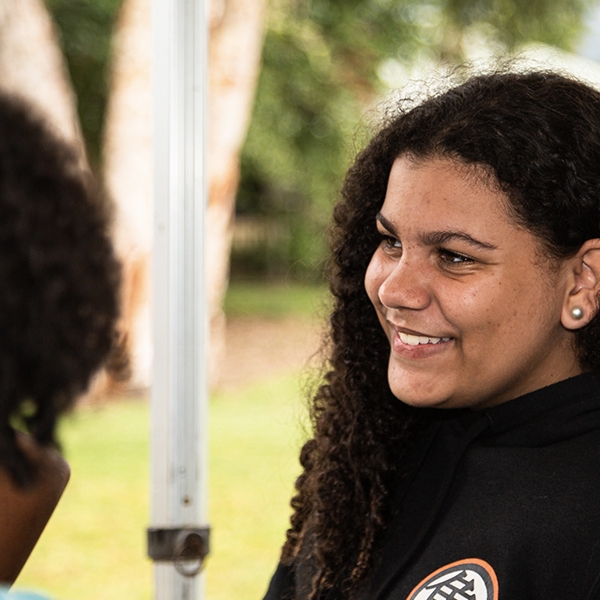
Cairns Community Living is a safe place of belonging for Aboriginal and/or Torres Strait Islander peoples with a disability.
Read more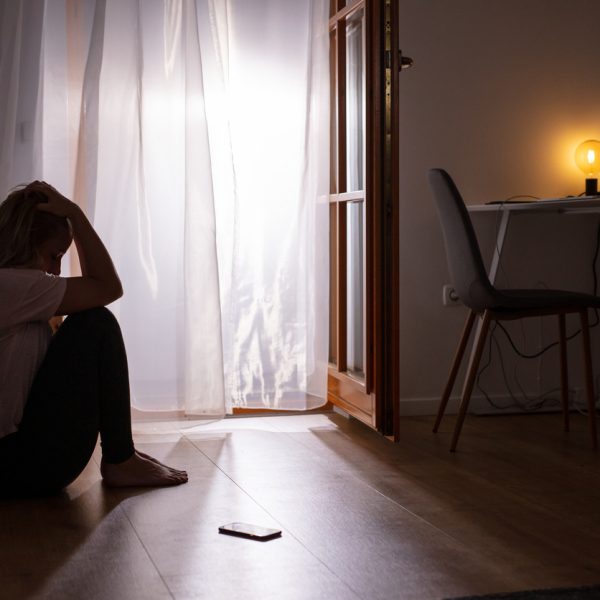
Synapse is working to respond to the unique needs of people with brain injury as a result of domestic violence, contributing to improved outcomes.
Read more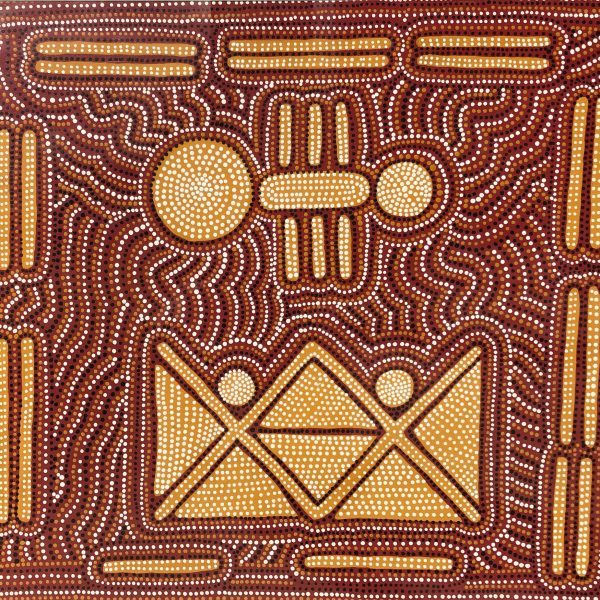
Synapse is working with Griffith University to review the processes for assessing the disability needs of Aboriginal and/or Torres Strait Islander prisoners.
Read more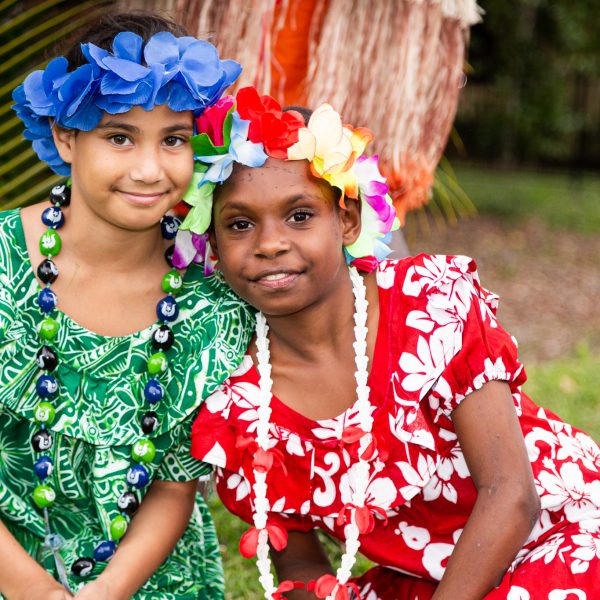
Come Home, Come Heal, Come Rest represents three inter-related core strategies oriented to improve understanding of and response to brain injury and cognitive impairment amongst Aboriginal and/or Torres Strait Islander peoples.
Read more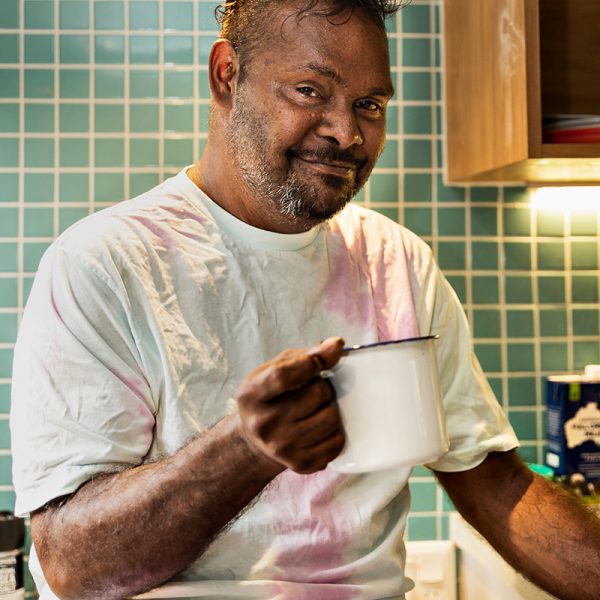
Home is where the heart is. But for people with brain injury we know this is frequently not the case, with many experiencing housing instability, living in aged care or in housing that does not meet their needs.
Read more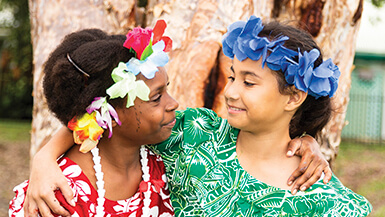
Aboriginal and Torres Strait Islander peoples with disabilities have much lower rates of access to appropriate services and supports including the NDIS.
Read more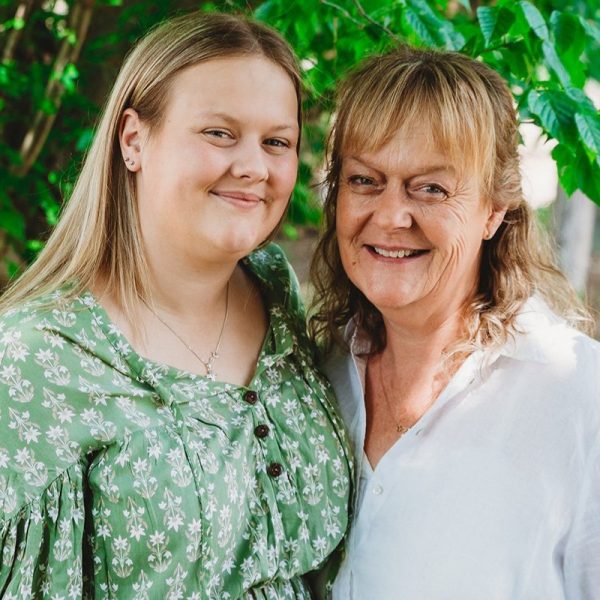
Our Family Liaison Program provides practical support and information to family members and carers of people who have a brain injury during hospital, rehabilitation and the transition home.
Read more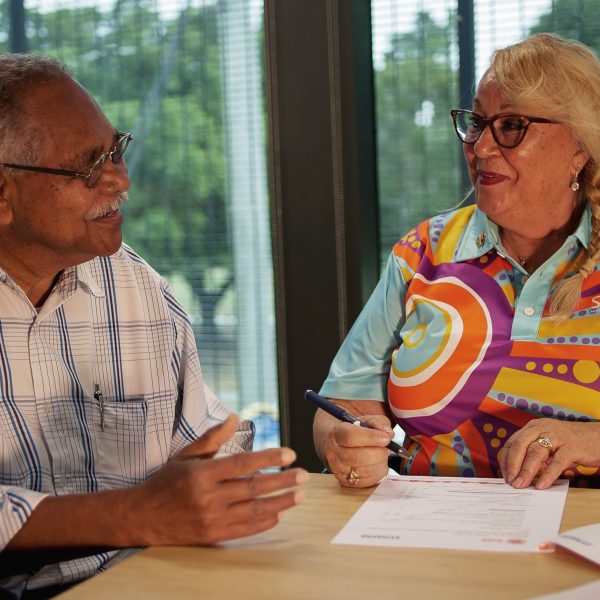
The Guddi Way Screen is an online, secure and automated platform built from evidence and stakeholder consultation. The screen identifies cognitive impairment and needs within a culturally informed and validated process.
Read more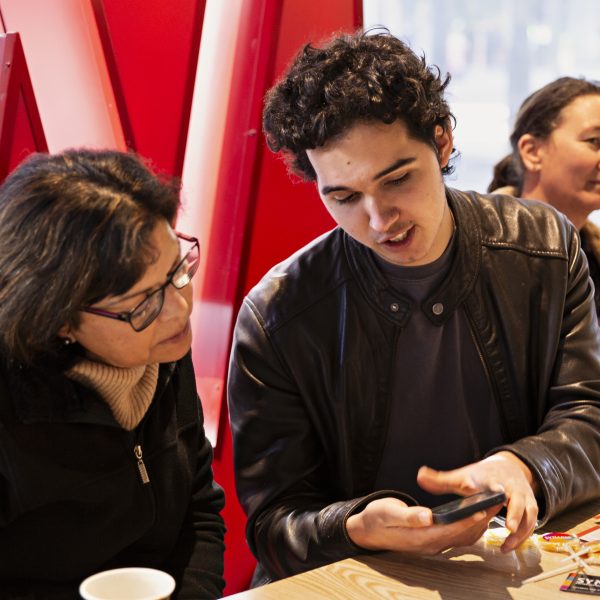
Registered NDIS pre-planning, support coordination and specialised services to ensure you, or the person you are caring for, get the most suitable support.
Read more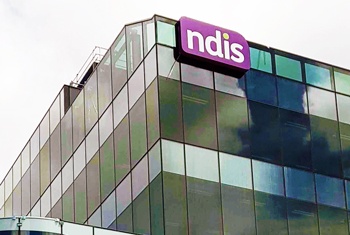
Those providing assessment and support within the NDIS should have appropriate education and training about brain injury and the cultural needs of Indigenous Australians.
Read more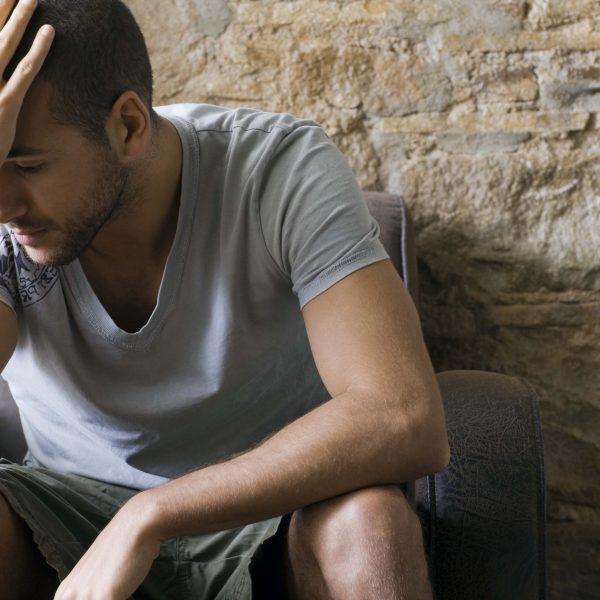
Adverse life experiences can influence vulnerability to disadvantage including violence, trauma and substance (AOD) misuse, all of which can lead to brain injury.
Read more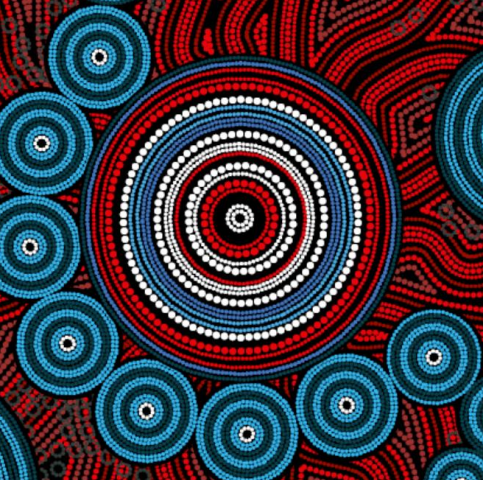
In 2018-2019 Synapse partnered with the Brisbane Murri Court to complete a pilot project in response to the need for culturally safe screening for brain injury and complex disability in the Murri Court system.
Read more
Information and practical housing support options to help you or someone you support live in the home and community of their choice.
Read more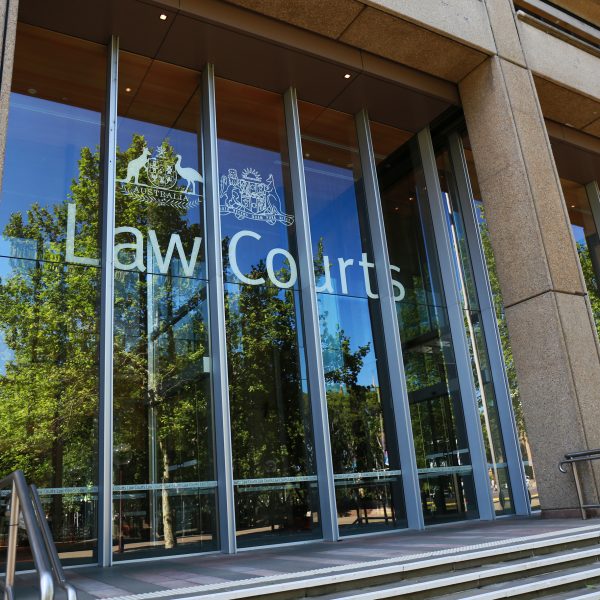
We understand the need for appropriate disability identification and referral processes to better support people with brain injury subject or at risk of custodial sentences and reduce recidivism.
Read more
Cairns Community Living is a safe place of belonging for Aboriginal and/or Torres Strait Islander peoples with a disability.
Read more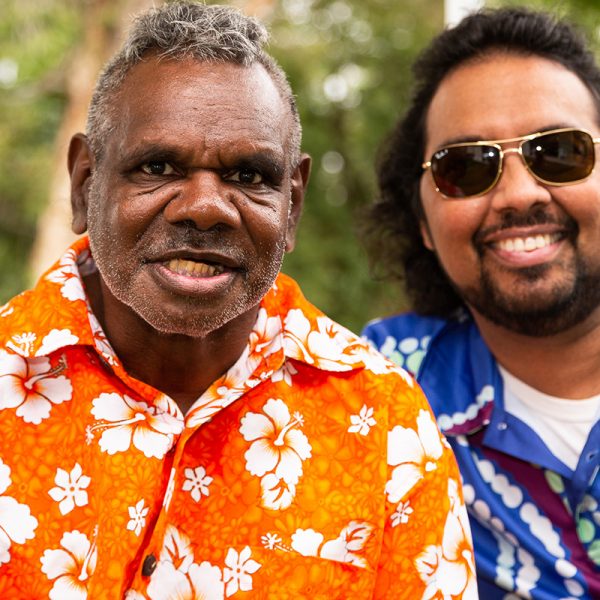
Throughout 2020 we will be working with Aboriginal communities and Disability Employment Service providers across Western Australia to develop new, culturally informed resources to support the delivery of employment services.
Read more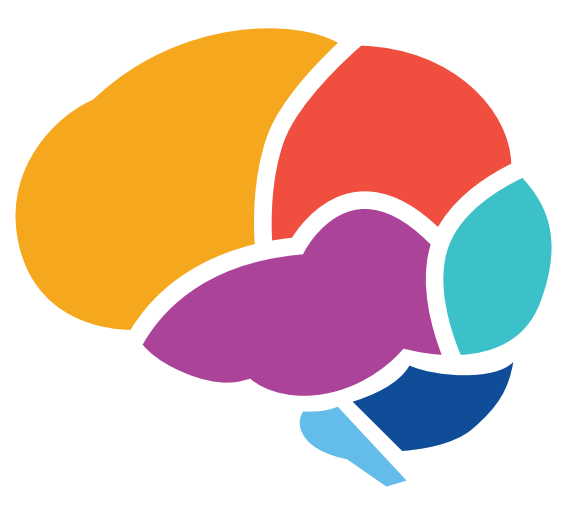
While every brain injury is different, we have a range of information on hand that can help explain the impacts.
Read moreSince our beginning as Headway Queensland, Synapse has grown to have national reach and become Australia’s Brain Injury Organisation.
Read more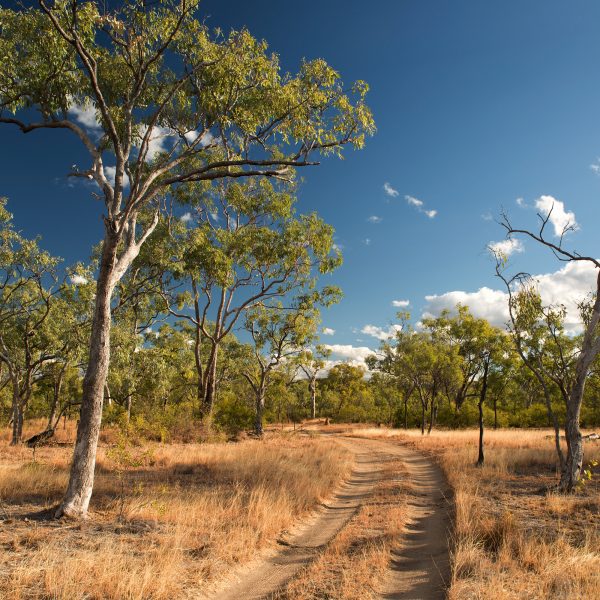
People with brain injury living in rural and remote locations have significantly less access to services and supports, due to the lack of availability in these areas.
Read more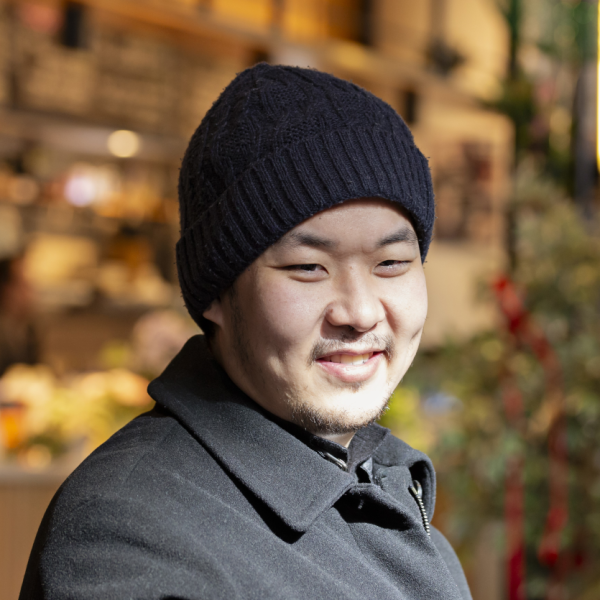
Tailored personal support across aspects of daily living, enabling you or someone you support to participate in desired community, vocational and educational activities.
Read more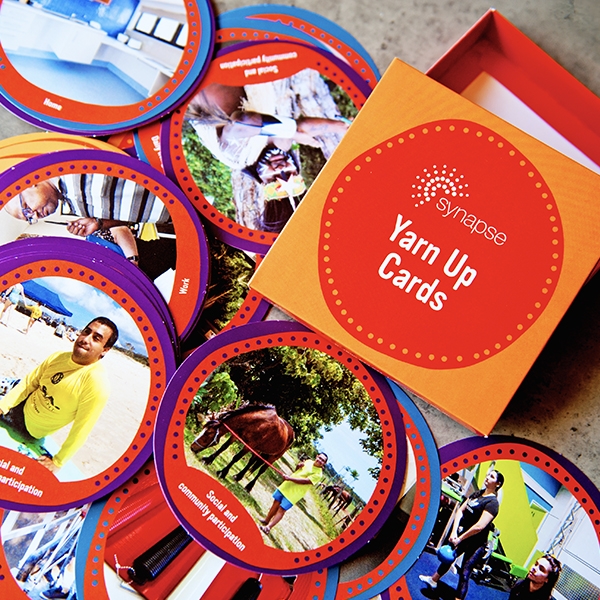
We have resources designed for Aboriginal and Torres Strait Islander communities to start conversations about the NDIS and provide examples of some of the types of supports and services available.
Read moreIt is the policy of Synapse that customers who have contact with, or access our services have the right to lodge a complaint, make comment and provide feedback if they are unsatisfied or concerned with the treatment or support they receive.
Read more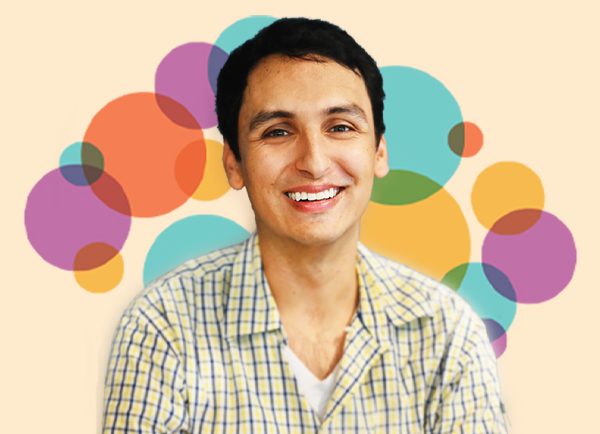
Julian suffered a traumatic brain injury in a motor vehicle accident in 2010. Since then he has adapted to life with a brain injury, sharing his story with others and offering understanding for those going through similar experiences.
Read moreWhen Alwyn Ricci founded Synapse (then Headway) thirty-five years ago, it was to make a genuine and practical difference to the lives of people impacted by brain injury and disability. This same passion and commitment continue to drive us forward today.
Read more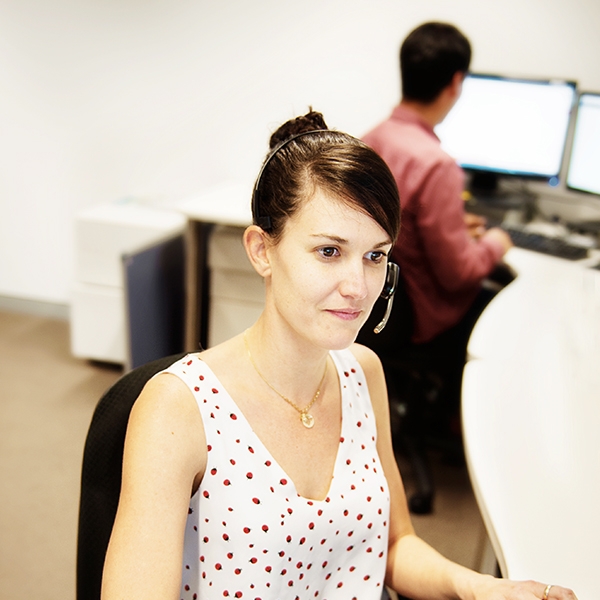
Our Information & Referral team provides specialist information and advice to help manage the impacts of brain injury and better navigate the systems of available care and support.
Read more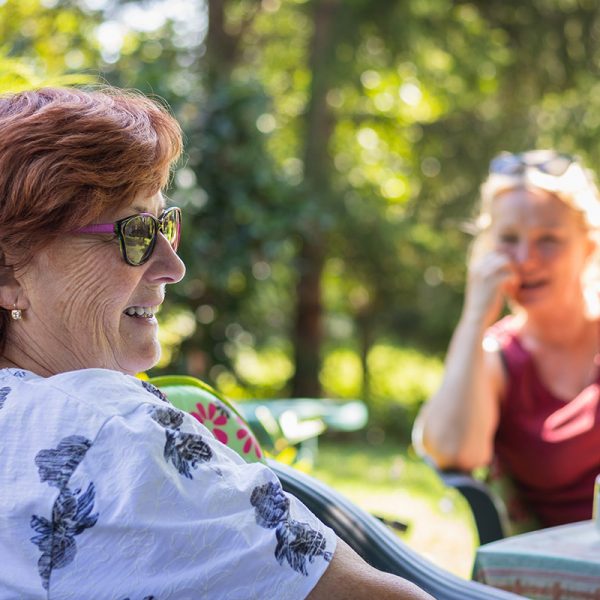
Ageing support helps the health and wellbeing of Ageing Australians impacted by brain injury.
Read moreNo matter where you live, there’s a number of ways you can connect to, and develop meaningful relationships with,…
Read more
Ensure you are equipped to care for someone with a brain injury by building a community of like-minded people around you.
Read more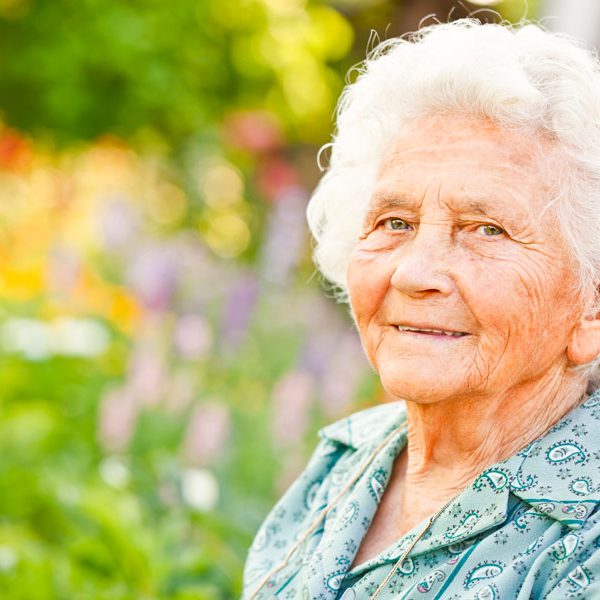
We know that for people over 65, there is an increased incidence of conditions that lead to brain injury including stroke, Parkinson’s disease, dementia disorders and injury through falls.
Read more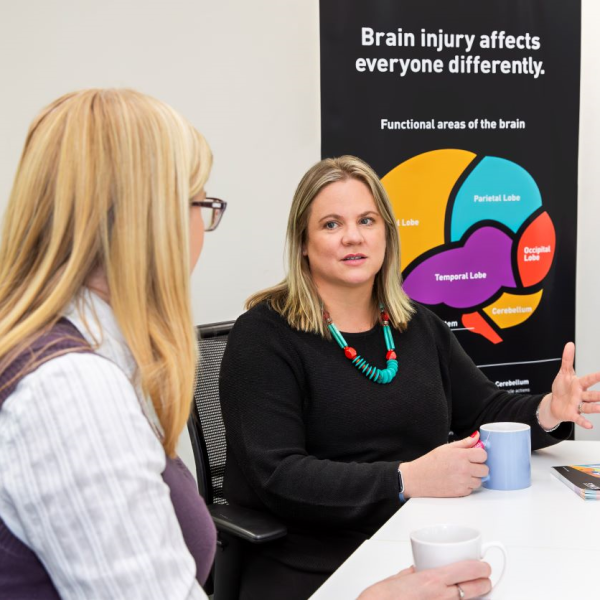
Advocacy services for you or someone you care for to ensure that rights, interests and needs are upheld across a range of disability systems and services.
Read more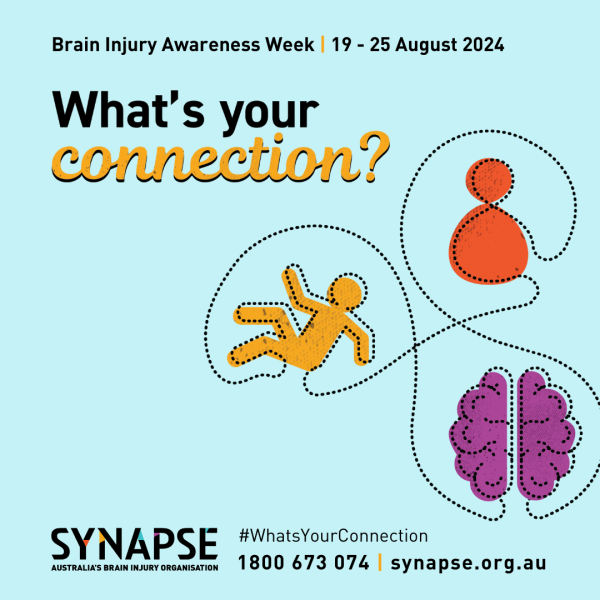
Brain Injury Awareness Week will be held 19 - 25 August 2024 to raise awareness of brain injury and its impact in Australia.
Read more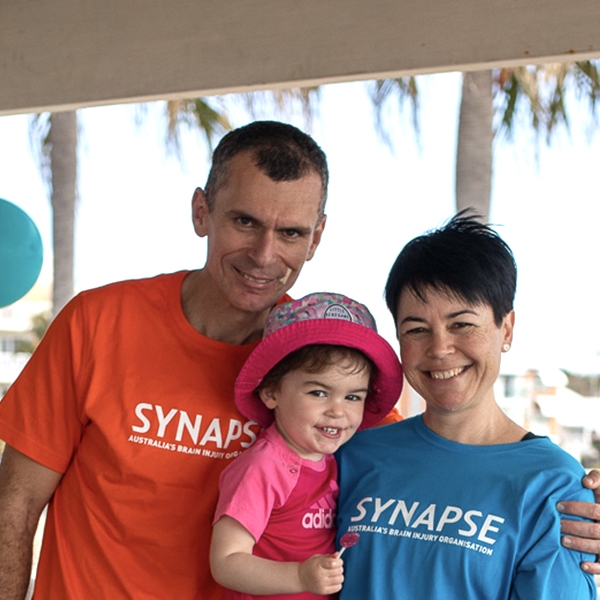
Whether it is through fundraising events and activities, workplace giving or corporate social responsibility, there’s a variety of ways that you can support us.
Read moreWe support individuals and organisations at every stage of their journey with practical solutions to the everyday challenges associated with brain injury.
Read more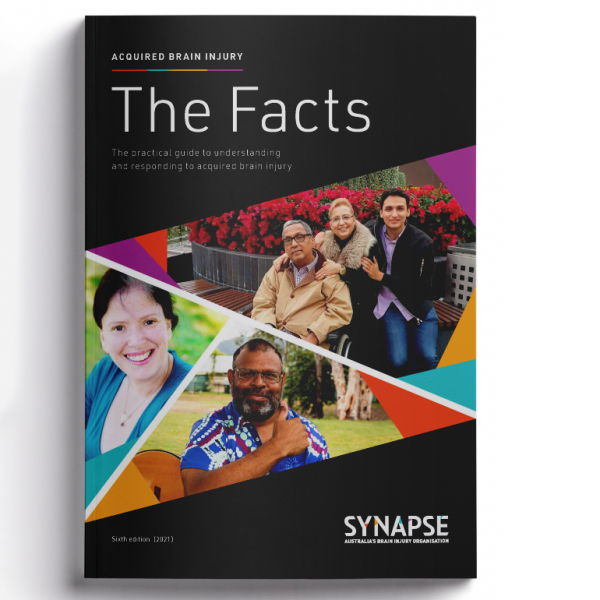
ABI The Facts is a comprehensive brain injury resource for professionals, individuals and families alike - it provides simple explanations of complex medical terms and delivers guidance for every stage of the journey.
Read more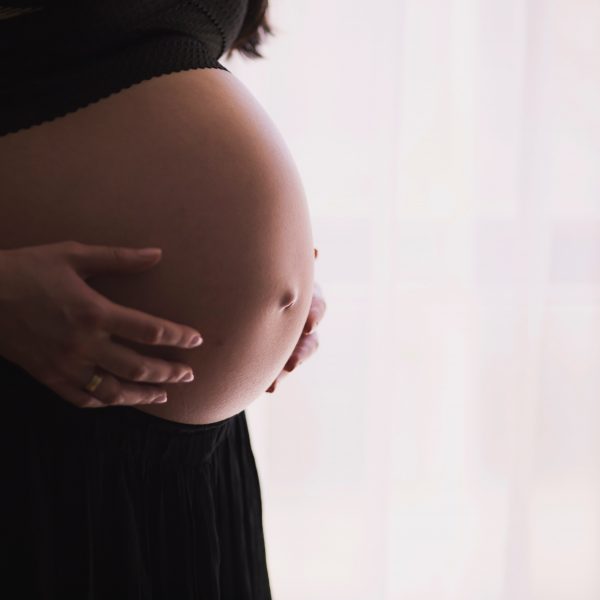
We are committed to increasing awareness about FASD, particularly in relation to people who may be undiagnosed and at risk of homelessness and/or engagement with the criminal justice system.
Read more
Synapse delivers unique training to help you, and your team, better understand the needs of people impacted by brain injuries.
Read more
Court Link is the Queensland Courts integrated court assessment, referral and support program. Synapse is delivering the pilot Court Link Community Support Service (CLCS) in Cairns QLD.
Read moreWe are tackling the complex issues that contribute to the prevalence and impact of brain injury and continue cycles of disadvantage and marginalisation for many individuals and their communities.
Read moreThe Brain Injury Forum exists to provide you with a safe space to discuss your experiences. Our Community Rules outline the values that should guide your discussions and provide further detail on how Synapse staff moderate the forum.
Read more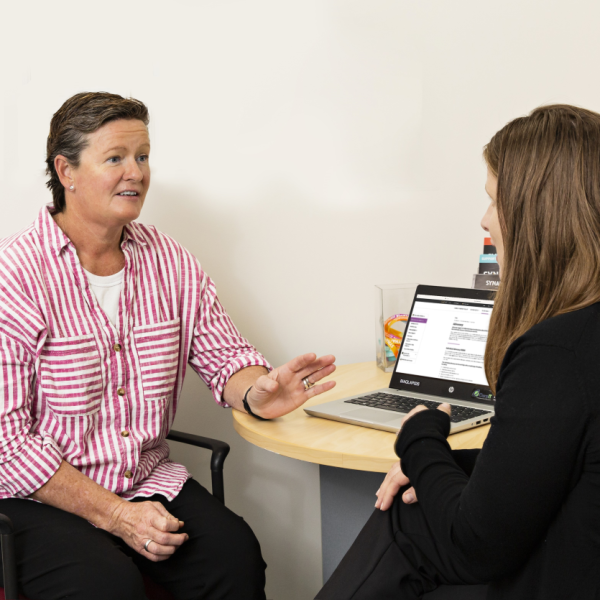
Synapse offers culturally appropriate Support Coordination services for Aboriginal and/or Torres Strait Islander peoples.
Read moreAdvocacy ensures justice and the fundamental human needs, rights and interests of people impacted by brain injury.
Read more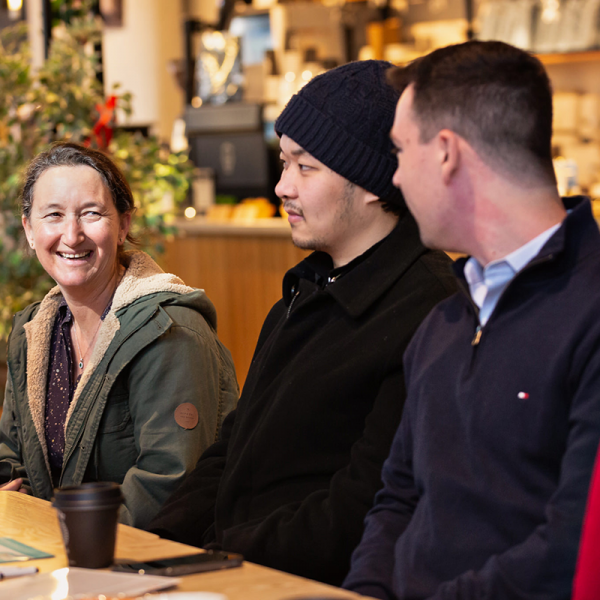
Our peer support community offers people with a brain injury the opportunity to connect with others to socialise, share experiences and feel understood and supported.
Read moreThe Synapse Leadership Team is responsible for providing strategic and operational management. The team has a diversity of specialist disability, health, research and corporate skills. Our Board members provide a broad range of experience in governance, finance, operations, disability, communications and health.
Read more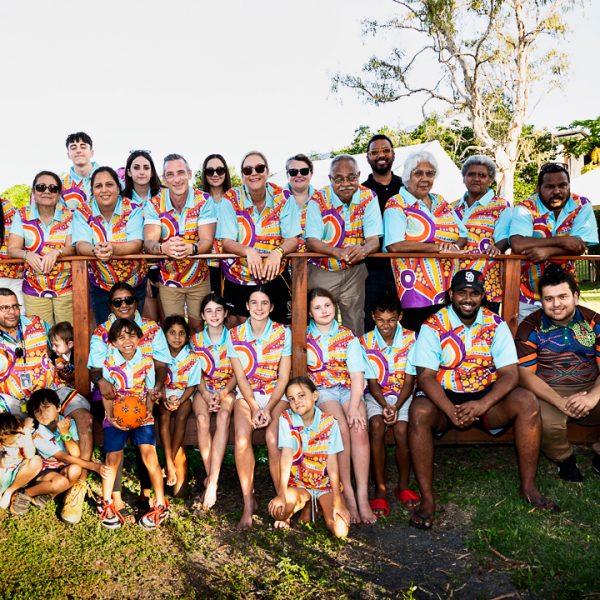
Synapse-Australia's Brain Injury Organisation, is expanding nationally, creating a remarkable opportunity for you to be at the forefront of change as a part of the Synapse team.
Read moreWe are passionate about creating change across Australia by developing an evidence base to connect knowledge, policy, services and systems that address complex issues surrounding brain injury.
Read more
The BrainBank Panel is a peer connection panel, operated by and for people who have lived experience of brain injury.
Read more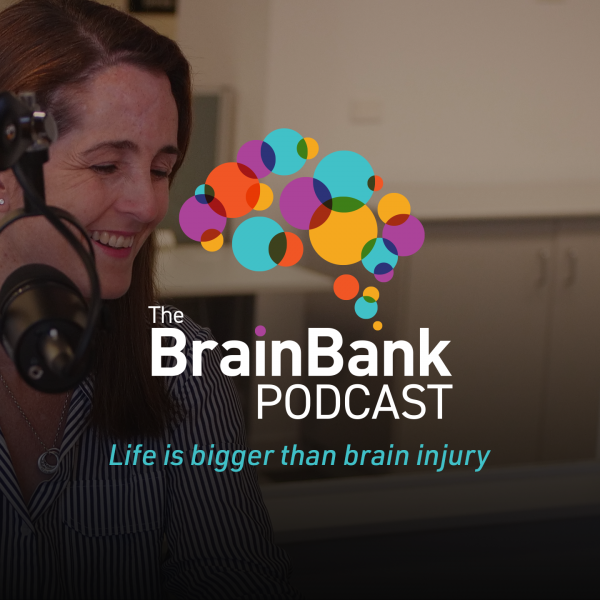
The BrainBank Podcast will answer your questions and connect you to community programs and services to help you live the life you want.
Read moreSynapse partners with research institutions, organisations and government bodies to create change for those impacted by brain injury.
Read more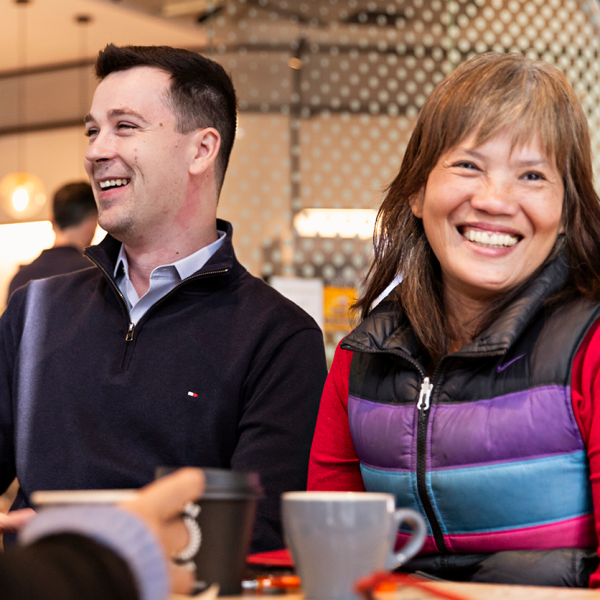
Our Reconnections support groups provide those living with a brain injury, or caring for someone, an opportunity to connect with other individuals and their families.
Read more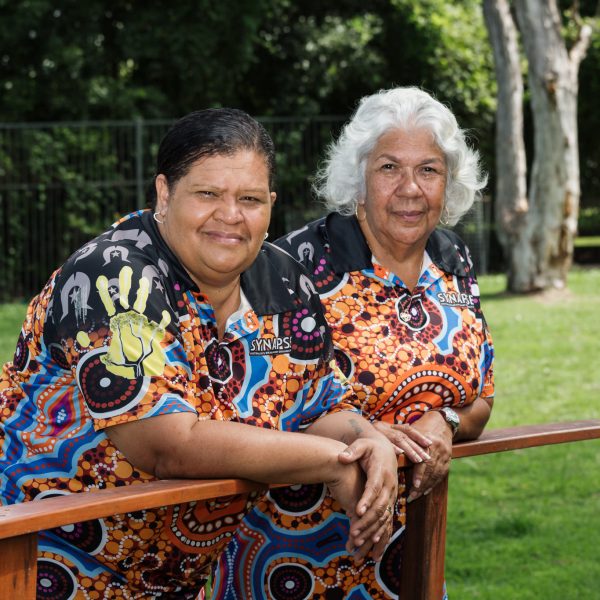
Our Wurri-Wurri Outreach in Queensland’s Far North is all about respecting our Elders. Together, in partnership with our Elders, we can keep them strong, both mentally and physically.
Read moreCaring for a family member with a brain injury can be challenging, and it is important to remember that carers also need support.
Read more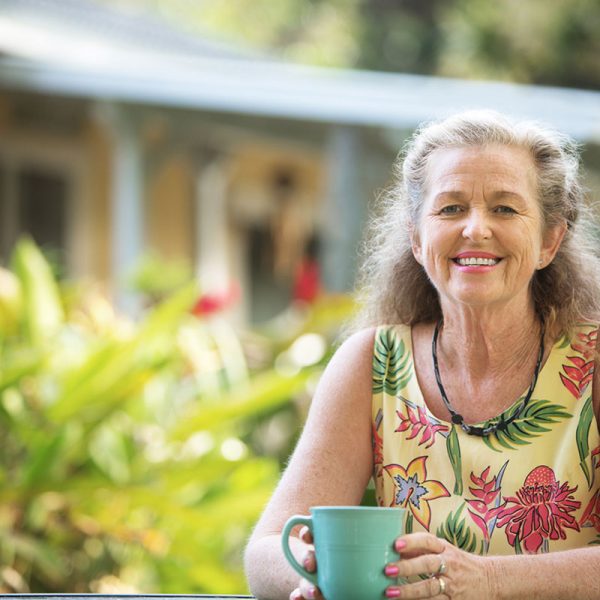
This October is Queensland's Seniors Month! Synapse is hosting events to discuss them theme of social connections.
Read more
Synapse is Australia’s Brain Injury Organisation. Synapse provides a range of support services for people who have…
Read more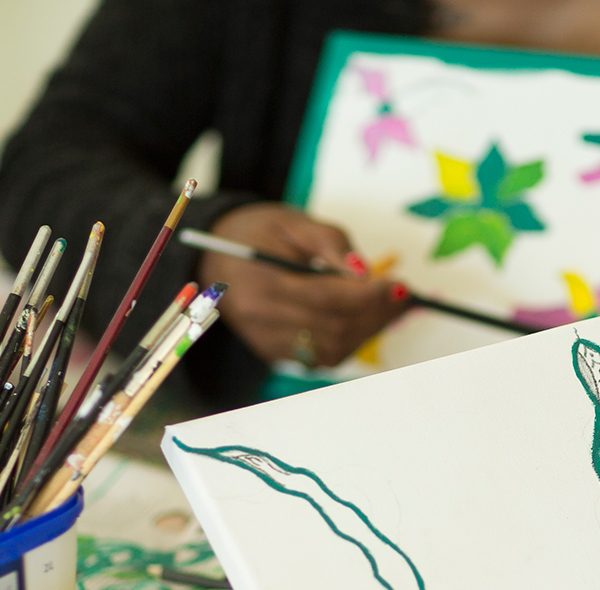
In 2018 Synapse partnered with the NSW Department of Justice and Guthrie House, a not-for-profit transitional service for women exiting the prison system, to support women who may have a brain injury.
Read moreNational Carers Week (Sunday 15 – Saturday 21 October 2023) recognises and celebrates the 2.65 million Australians who provide care and support to a family member or friend.
Read more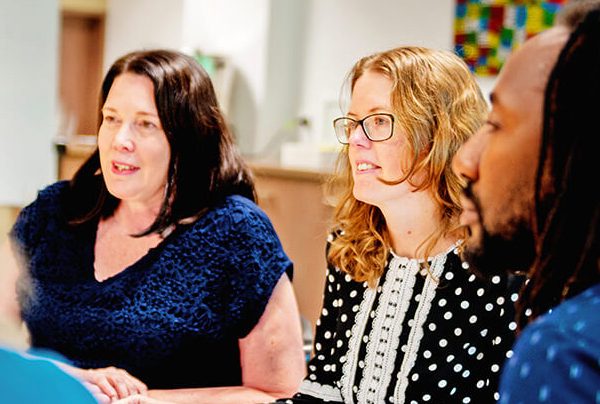
Improve your understanding of brain injury and ability to provide appropriate support to people affected.
Read moreHelp us to connect people impacted by brain injury to specialist information, support and services.
Read moreAlthough the degree of recovery is largely determined by the nature and extent of the injury, the level of engagement in rehabilitation also significantly affects recovery outcomes.
Read moreRehabilitation refers to a variety of therapies and support services available to people following the acute phase of recovery, once a person is medically stable.
Read moreThe care needs of people affected by a brain injury often fall informally onto their parents, spouse or siblings.
Read moreNo one can truly understand the devastating impact a brain injury can have without experiencing it personally.
Read moreYour family member is discharged from hospital and you are ready to continue their rehabilitation. The steps listed below may serve as a guide if you wish to develop a program using free or low-cost resources which exist in your community.
Read morePredictions of recovery are difficult in the months following a brain injury, with the person and their family often frustrated by lack of knowledge about the future.
Read moreThe return home from hospital after a brain injury is usually eagerly awaited by family members.
Read moreA stroke is an interruption of blood supply to part of the brain. If arteries become blocked, bleed or break, then the brain tissue is damaged, causing brain injury.
Read moreMost people with an ABI will initially find some difficulty with prioritising, sequencing,organising, starting, and completing tasks.
Read moreA brain injury in the family can disrupt almost every aspect of life, creating emotional turmoil that impacts on everything and everyone in some way or another.
Read moreSeveral indicators are used to make predictions in determining brain injury severity.
Read moreA brain injury can disrupt the long and complicated process to move from childhood through to being a mature adult.
Read moreHaving a social life and pursuing interests make life worthwhile and are important to consider following brain injury.
Read moreIn the aftermath of your child acquiring a brain injury it can be easy to neglect your family. Caring for a child with a brain injury can take a great deal of time and energy. It's easy for everyone else's needs to get side-lined, and difficult to get the balance right.
Read moreAcquired brain injury (ABI) can have a number of consequences for an individual’s sexual functioning.
Read moreThe impact of a brain injury has been likened to throwing a pebble in a pond. The ripple effect expands to partners, friends, family, carers, work colleagues and the wider community.
Read moreA healthy diet is an essential key to maximizing your brain’s potential after a brain injury.
Read moreGrowing up involves taking risks. This is normal as young people ‘test the waters’ and move towards independence and adulthood.
Read moreSurvivors of a brain injury often make excellent recoveries through, hard work and professional and family support.
Read moreMany people with a brain injury see returning to work or study as an important milestone.
Read moreSurvivors of a brain injury who have done very well in their recovery may still face significant challenges in returning to their studies.
Read moreSocial skills and confidence can both be affected following an acquired brain injury.
Read moreChildren and young people with a brain injury may have difficulty with the social skills that most of us take for granted.
Read morePeople with an acquired brain injury may be at risk of suicide at some stage of their recovery process. It is very important for family members and friends to recognise the danger signs, know how to help and who to turn to for advice or referral.
Read moreActively engaging in physical activity and social engagement tests resilience. When someone is ageing with a brain injury, a positive ageing experience can be experienced.
Read moreEveryone wants to be loved, it’s a fundamental human need. We all need people to talk to and laugh with, spend time with, share ideas, worries and joys. But after brain injury our relationships with partners, family and friends can often change quite significantly.
Read moreThe early days after your child’s brain injury. Raising a child brings challenges to all parents, and for parents of a child with a brain injury, those challenges canbe magnified.
Read moreBrain injury can occur when there is a reduction in (hypoxic) or complete lack of (anoxic) oxygen supply to the brain.
Read moreInfections that cause swelling in the brain or the membrane that surrounds the brain and spinal cord (meninges) can result in acquired brain injury (ABI).
Read moreCarers need to maintain their own health and wellbeing as part of their caring role.
Read moreThere are a number of degenerative conditions that lead to brain injury. Dementia is a category of brain diseases that result in memory loss and deterioration of speech, motor skills and cognitive functioning as it progresses.
Read moreResuming an independent lifestyle safely after a brain injury is an important goal. This goal should be approached in stages based on individual needs and abilities.
Read moreIt is often the case that a person finishes rehabilitation and is not yet ready to return to work or study.
Read moreSensory and perceptual problems arise from damage to the right side of the brain or the parietal and occipital lobes of the brain.
Read moreThe long-term effects of a brain injury may not be evident for some time. This makes predictions of recovery difficult in the months following a brain injury.
Read moreRegardless of the effects of a brain injury, parents can still bring out their children’s strengths, help them build resilience, and enable them to develop to their full potential.
Read moreLanguage and everyday living skills may need particular attention to ensure that a child with a brain injury recovers to the fullest extent possible over the years.
Read moreMost rehabilitation specialists will advise against drinking alcohol for at least one to two years after brain injury, or even indefinitely.
Read moreA neuropsychological assessment will usually be provided in the early stages of recovery. The main aim of the assessment is to maximise the survivor’s rehabilitation and participation in family, work and the community.
Read moreA neuropsychological assessment will usually be provided in the early stages of recovery. The main aim of the assessment is to maximise the survivor’s rehabilitation and participation in family, work and the community.
Read moreThe time in the hospital can be an overwhelming experience, but there are things that you can do to minimise stress.
Read moreEquipment and lifestyle aids have a role to play in helping people regain some or all of their independence after a brain injury.
Read moreDomestic violence is when a person abuses and/or physically hurts their partner. Family violence is when a person abuses and/or physically hurts their family.
Read morePain can be one of the many effects of a brain injury and it needs appropriate management.
Read moreRaising a child brings challenges to all parents, and for parents of a child with a brain injury, those challenges can be magnified.
Read moreIt is beneficial to stay in touch with friends during the rehabilitation and recovery stage. Additionally, support groups can play a vital role for the person with a brain injury, their carers and family.
Read moreTreatment options vary depending on individual patients and injuries. Being familiar with treatments, terminology, and medical staff titles can help you understand what’s going on.
Read moreSpeech language pathology encompasses the diagnosis, assessment and treatment of communication and swallowing disorders.
Read moreThe brain needs exercise to stay in optimum health, just like our body. Practising skills will lead to better performance and ongoing mental stimulation will help protect against mental decline.
Read moreA brain injury can affect a person’s ability to communicate by impairing their hearing, speech and cognitive processing.
Read moreWhile dogs have long been portrayed as ‘man’s best friend’ - a loyal companion – it’s not only canines that can prove a source of support and reassurance following brain injury.
Read moreThe brain controls and coordinates everything we do - our movements, feelings, thoughts, and bodily functions.
Read moreBrain tumours can affect brain function in a number of ways and to varying degrees, depending on where they grow and how severe they are.
Read moreTraumatic Brain Injury (TBI) is caused by either a blow to the head or by the head being forced to move rapidly forwards or backwards.
Read moreRetirement programs enable people with disability to successfully retire, and support mainstream community services to better accommodate people with disability.
Read moreThe effects of a brain injury can be diverse, so a wide range of accommodation options are needed.
Read moreA brain injury can affect attention or concentration abilities, leading to problems with work, study and everyday living.
Read moreDrinking a lot of grog all the time can cause lots of different health issues like diabetes and kidney failure. You can have these health issues for a short time, or they can be for life and turn into serious injuries.
Read moreCaring for a family member with a brain injury is one of the most difficult challenges that can confront a family especially for those providing direct care.
Read moreLack of self-awareness is a common outcome for people who sustain brain injuries with frontal lobe damage. Their inability to self-monitor and self-correct behaviour can lead to challenging behaviours.
Read moreDecision-making ranges from minor decisions, such as what to have for dinner, to major life-changing ones, such as changing careers.
Read moreWhile stress is part of everyday life and a natural reaction when major change occurs, its impact can be much greater following brain injury.
Read moreThe ability to view the world from someone else’s point of view is a complex cognitive skill that occurs in the frontal lobes of the brain.
Read moreEpilepsy is recurring brief episodes of abnormal electrical activity in the brain leading to uncontrolled convulsions and unconsciousness, or a momentary loss of awareness.
Read moreSome brain injuries can result in a loss of motivation and difficulty in getting started with activities.
Read moreLack of sleep has a negative effect on our ability to think, mood, energy levels and appetite. The average person needs around eight hours sleep a night or will suffer from decreased concentration, energy and many other problems.
Read moreShort-term memory loss is very common after a brain injury – thankfully there are plenty of coping strategies available. Typical situations include forgetting people's names, losing a train of thought, getting lost at the shops, repeating or forgetting past conversations, misplacing objects and difficulty learning new skills.
Read moreHeadaches are a common and often persistent problem after acquiring a brain injury. Headaches can arise after damage to different structures both inside and outside the head.
Read moreBrain injury includes a number of conditions and disorders that result in impairment to the brain and its functions.
Read moreAdvocacy relates to access and the fundamental human rights, needs and interests of all. Advocacy may involve speaking up for someone with a disability, or self-advocacy where a person speaks for themselves.
Read morePanic attacks occur when the body reacts as if it is in grave danger in a situation where there is no imminent threat.
Read moreFor many, caring for a family member has become a life-long responsibility. But as carers age, physical, social and emotional factors, declining health and strength can take an increasing toll.
Read moreDizziness and balance problems are common after a brain injury. This can result in problems with movement even when there is no loss of function in the limbs themselves.
Read moreComa is generally the result of damage or interference with particular structures of the brain, and its length and depth provide a strong indication of the severity of brain injury.
Read moreWhile the general effects of brain injury can often include a level emotional distress, affecting your ongoing health and well-being, it’s not uncommon for people with a brain injury to experience more specific symptoms of post-traumatic stress disorder (PTSD).
Read moreAlcohol is a poison, or neurotoxin, that can cause injury to the brain. This is known as Alcohol Related Brain Injury (ARBI). Other drugs - which fall into the category of stimulants, depressants or hallucinogens - can also lead to impairments.
Read moreA brain injury may result in an ongoing need for medications prescribed to you by your doctor.
Read moreDementia is a category of brain diseases that result in memory loss and deterioration of speech, motor skills and cognitive functioning as it progresses.
Read morePost-brain injury many employees are eager to return to work. Employers may find some simple adjustments can be made to allow this to happen.
Read moreChallenging behaviours after a brain injury can sometimes lead to domestic violence within a family.
Read moreClinical depression is a serious disorder that impacts on a person physically, emotionally and even cognitively - slowing thought processes and reducing the ability to concentrate.
Read moreInjury to the frontal lobes after a traumatic brain injury (TBI) can affect the area of the brain that normally controls our impulses.
Read moreCaring for someone can be a 24 hour job that is emotionally, physically and financially taxing.
Read morePeople often turn to complementary therapies and alternative medicines to assist with some of the issues created by a brain injury.
Read moreThese can be behaviours where the reasons behind the behaviour are difficult to understand or that people find hard to accept.
Read moreBrain injury is a known risk factor for developing a mental illness, while some people with brain injury will have a pre-existing mental illness. Either way, dealing with both can cause additional stress for the person and their family after a brain injury.
Read moreApproximately half of all severe brain injuries will need surgery to remove or repair hematomas or contusions. These are often emergency procedures.
Read moreMental health describes the health of your emotions and how you cope. Unlike your physical health, your mind is more fragile and can start to change from things such as frightening experiences.
Read moreAgeing is a risk factor for acquiring a brain injury, particularly over the age of 65. As we get older, our chance of developing dementia rises. So too does the likelihood of falls that result in brain injury. We might not be able to stop either from happening, but there are ways to reduce the risk and manage symptoms.
Read moreGrieving who the person used to be can be confusing, as the injured person can be physically present but psychologically absent.
Read moreFatigue is a common and highly disabling symptom experienced by people with a brain injury.
Read moreA brain injury can result in a variety of hearing difficulties due to damage caused to both mechanical and neurological processes.
Read moreWhen another party has caused an injury through negligence there may be grounds for making a claim for compensation.
Read moreRelearning sociable behaviour is easier when family, friends and co-workers agree on set limits and give the same feedback on what is acceptable or unacceptable behaviour.
Read moreConcussion is the most common form of traumatic brain injury (TBI), affecting around 42 million people worldwide each year. It is the result of a physical blow or sudden jolt that forces the brain to move within the skull.
Read moreThe nervous system is a complex system including the brain, spinal cord and nerves. It interprets and responds to information received through the senses.
Read moreA physical assault or fighting can happen for lots of reasons. But one of the main causes is people drinking grog. People can get seriously hurt and also cause serious injuries to someone else.
Read morePhysical assault is a major cause of traumatic brain injury (TBI), with young men between the ages of 20 and 24 being the most vulnerable.
Read moreAnger is a very common emotional response after a brain injury and can be directly related to impairments caused by the injury and difficulties with self-regulation.
Read moreEveryone has a legal right to make decisions and control their own life. If a person loses the ability to make decisions in life, legal guardians and administrators can make decisions for them.
Read moreMost people with a brain injury are expected to experience a normal life span but families and carers can play a crucial role by monitoring for any further medical problems arising post-injury, particularly after hospital.
Read moreThe ABC model is an effective way to understand challenging behaviour and develop suitable responses within a positive behaviour support plan.
Read moreThere are many places to find support in the hospital. We take a look at some of them.
Read moreRepeated, mild ABIs, such as concussions experienced by professional sports people like boxers and footballers, can be related to a neurodegenerative condition known as Chronic Traumatic Encephalopathy (CTE).
Read morePerseveration is repetitive and continuous behavior, speech or thought that occurs due to changes in cognitive skills such as memory, attention, and mental flexibility.
Read moreBrain injury can sometimes result in behaviour that is dangerous to the person with the injury and those around them.
Read moreFetal Alcohol Spectrum Disorder (FASD) refers to a range of impairments that can develop in an individual due to exposure to alcohol in the womb.
Read moreThere are many reasons why a person with brain injury might develop challenging behaviour.
Read moreProvide support, recovery and educational services to people and families living with anxiety disorders.
Read moreThis service is available for people who have been diagnosed with conditions including: Stroke, Brain or Spinal tumours, Multiple Sclerosis,… Continue reading "Austin Health – Royal Talbot Rehabilitation Centre, neurological rehabilitation service"
Read morePeople impacted by multiple conditions that may include a chronic mental health condition, mental illness following accident or injury, brain… Continue reading "Recovery Compass Consulting (OT)"
Read moreThe 140-bed State Rehabilitation Service provides statewide tertiary or specialist level inpatient and outpatient clinical rehabilitation services to people suffering… Continue reading "Fiona stanley Hospital: State Rehabilitation Service"
Read moreAcquired Brain Injury Community Rehabilitation supports people with a severe brain injury following discharge from hospital and who require further… Continue reading "Caulfield Hospital: Acquired Brain Injury Community Rehabilitation"
Read moreProvides rehabilitation to meet the needs of people with severe brain injuries resulting from trauma, stroke and other medical causes… Continue reading "Caulfield Hospital Acquired Brain Injury (ABI) Rehabilitation service"
Read moreIndependent Rehabilitation Services provides community-based Occupational Therapy, Physiotherapy and Speech Pathology to adults with neurological conditions. We are committed to… Continue reading "Independent Rehabilitation Services"
Read moreThe Rehabilitation Collective has been established to provide high quality, person centred, goal directed and evidence based therapy services for… Continue reading "The Rehabilitation Collective OT"
Read moreThe acquired brain injury unit is a statewide inpatient rehabilitation service for people with an acquired brain injury.
Read moreBallina District Hospital, 58 Fox Street, BALLINA NSW 2478 Phone: 02 6620 6361 | Fax: 02 6620 6348
Read moreSouth Perth Physiotherapy has a history of exceptional physiotherapists, all whom take on a very “hands on” approach. Manual procedures… Continue reading "South Perth Physiotherapy"
Read morePhysiotherapists, Occupational Therapists and Speech Pathologists work with adults and adolescents with an acquired brain injury and numerous other neurological… Continue reading "Independent Rehabilitation Services"
Read moreWe are committed to providing expert physiotherapy treatment and advice to people living with neurological disease or injury in Perth’s… Continue reading "Hills Neurological Rehabilitation"
Read moreThe Western Australian Association for Mental Health (WAAMH) is the peak body for community mental health in Western Australia. Our… Continue reading "WA Assoc. for Mental Health WAAMH"
Read morePrivate Hospital. This program is designed for clients who have alcohol and other drug abuse/dependence issues and is aimed at… Continue reading "St John of God Chemical Dependency Unit"
Read moreClinical Psychologists. Community based clinical psychology services- through LTCS, Medicare, CTP and private referrals. Professional referral not required unless going… Continue reading "Inspire Rehab and Psychology: Samantha Grant and Alethea Tomkins"
Read moreYour Best Life Disability and Health Services provides services in the Sunshine Coast, Noosa, Gympie, and Moreton Bay Local Government… Continue reading "Your Best Life Disability and Health Services"
Read moreHAND & UPPER LIMB ASSESSMENT Comprehensive assessments are used to guide the hand rehabilitation program and / or provide recommendations… Continue reading "In Hand Therapy Midland"
Read moreHAND & UPPER LIMB ASSESSMENT Comprehensive assessments are used to guide the hand rehabilitation program and / or provide recommendations… Continue reading "In Hand Therapy Claremont"
Read moreAlison has worked specifically in the area of cognitive rehabilitation for children, teenagers and adults for the past 25 years.… Continue reading "Alison Self OT services"
Read moreSuffering? We are passionate about patient care and our 30 years of service proves it. We are a state of… Continue reading "Mandurah Physiotherapy"
Read moreThe Mount Pleasant Counselling Centre provides a range of Psychological, psychotherapeutic and counselling services for individuals, couples, families and Organisations,… Continue reading "Mt Pleasant Counselling Service Mt Pleasant"
Read moreThe Mount Pleasant Counselling Centre provides a range of Psychological, psychotherapeutic and counselling services for individuals, couples, families and Organisations,… Continue reading "Mt Pleasant Counselling Service South Perth"
Read moreTASC is a not for profit organisation that delivers legal, advocacy, psychology and counselling services across Toowoomba, Ipswich, Roma and… Continue reading "TASC National Ltd"
Read moreA big vision by a small group in 2005 as part of the International Day of people with a disability,… Continue reading "Aboriginal and Torres Strait Islander Disability Network of Queensland"
Read moreFollowing your stroke, ABI or new diagnosis, we want you to have the right tools to support you in your… Continue reading "Neurotherapy Services"
Read moreClinical Neuropsychologist providing assessment of brain functioning to support adjustment and recovery, as well as education or counselling to help… Continue reading "Kate Lennon Neuropsychology"
Read moreIn 1995 Helen completed the APPWA Diploma in Psychoanalytic Psychotherapy. She has significant training in psychoanalytic approaches to group and… Continue reading "Dr Helen Costello Palmyra Clinical Psychology"
Read moreDr Darryl Bassett, MB, BS, BSc, FRANZCP, Dip. Psychotherapy, Psychiatrist in full time private practice. Dr Bassett’s particularly interests at… Continue reading "Dr Darryl Bassett"
Read moreThe organisation is recognised as the peak NSW Aboriginal organisation to providing child protection and out-of-home care policy advice and… Continue reading "Aboriginal Child, Family and Community Care Secretariat (AbSec)"
Read moreProvides subsidised aids and equipment, home and vehicle modifications
Read moreThe department offers programs to help create safe and caring homes and communities for all families and children.
Read moreAged and Disability Advocacy Australia (ADA Australia) is a not-for-profit, independent, community based advocacy and education service with more than… Continue reading "Aged and Disability Advocacy Australia Ltd"
Read moreProvides information, support, referral and advocacy services to carers, parents and families of adults with an intellectual disability and/or dual… Continue reading "Carers and Parents Support Group"
Read moreProvides crisis accommodation and information for people in the eastern region of Melbourne who are experiencing or are at risk… Continue reading "Uniting -Crisis and Homelessness"
Read morePeak organisation for the non-government alcohol and other drug sector in NSW. Aim is to reduce alcohol and drug related… Continue reading "NADA – Network of Alcohol and Other Drugs Agencies"
Read moreis a leading not-for-profit organisation that provides family focused intervention programs that are effective and affordable for young children with… Continue reading "Abi: Assessments and Behaviour Interventions"
Read moreThe Brighton Brain Injury Service (formerly Jacana Acquired Brain Injury) provides complex and comprehensive rehabilitation for clients with an acquired… Continue reading "Brighton Brain Injury Service (BBIS)"
Read moreWe are a mobile service that comes to you. We provide remedial and compensatory techniques to improve safety, independence and… Continue reading "Yellow door therpy Services"
Read morePrivate practice with 2 locations: Wallsend and Adamstown. Specialise in neurological disabilities. Accept self referrals – including initial contact through… Continue reading "NeuroAlliance (Physiotherapy)"
Read moreExperienced physiotherapists who are up to date with the latest treatment techniques and evidence based practice. Our Clinical Rehabilitation Instructors… Continue reading "Perth Physiotherapy & Pilates"
Read moreWide range of services – neurological, orthopaedic, reconditioning etc
Read moreNeurolab PT focuses on neurological rehabilitation, providing back to basics home visiting physiotherapy services.
Read morePrivate psychiatric hospital. Medicated detox. 21 day rehab. Recovery Support. Patients must be admitted under a psychiatrist.
Read moreWhether you are recovering from an injury, or you just wish to enhance your body’s performance, we strive for excellence… Continue reading "Health Central"
Read morePCH’s Children’s Neuroscience Service encompasses neurology, neurosurgery and neurophysiology services. The Children’s Neuroscience Service provides a specialist service for the… Continue reading "Perth Childrens Hospital Neuroscience and Neurology"
Read moreSupport for current and ex-serving ADF personnel and their families Call us to access free and confidential counselling, group treatment… Continue reading "Open Arms – Veterans & Families Counselling"
Read moreSupport for current and ex-serving ADF personnel and their families Call us to access free and confidential counselling, group treatment… Continue reading "Open Arms – Veterans & Families Counselling"
Read moreWe provide professional psychology and counselling services in individual counselling marriage counselling relationship counselling family counselling psychologists perth Employee Assistance… Continue reading "Vision Counselling Midland Office"
Read more24 hour service staffed by qualified mental health clinicians who can help individuals, their carers and the wider community link… Continue reading "South Eastern Sydney and Illawarra Area Health Service"
Read moreHULC creates tailor-made therapy programs for each patient to assist with rehabilitating diagnosed conditions and/or post surgical treatment. Our therapists… Continue reading "Hand and Upper Limb Centre"
Read moreHULC creates tailor-made therapy programs for each patient to assist with rehabilitating diagnosed conditions and/or post surgical treatment. Our therapists… Continue reading "Hand and Upper Limb Centre"
Read moreOur combined qualifications and knowledge include; Ph.D.(low back pain), Master of Manual Therapy, Master of Medical Science (shoulder thesis), B.Sc.… Continue reading "Precision Physiotherapy and Remedial Massage"
Read moreQueensland Advocacy Incorporated (Q A I) is an independent, community-based, individual, systemic and legal advocacy organisation for people with disability… Continue reading "Queensland Advocacy Incorporated"
Read moreDriving the seriously ill, elderly, needy and disabled to and from medical appointments.
Read moreABIOS is a specialist community-based rehabilitation service to enhance the service system for people with Acquired Brain Injury (ABI) and… Continue reading "Acquired Brain Injury Outreach Service (ABIOS)"
Read morePrivate Hospital. All drugs. Detox and rehabilitation program. 3 week in-patient program. Men and women on alternate days. Dr referral… Continue reading "Northside Clinic"
Read morePrivate Hospital. 3 weeks residentail detox/rehabilitation program. For ages 18 years and over. The hospital also has a separate anxiety/depresssion/mood… Continue reading "Northside West Clinic"
Read moreCase coordination, clinical psychology, physiotherapy, speech pathology, occupational therapy, social work and therapy assistant.
Read moreOur services include: 24 hour Emergency Department consultation services inpatient general neurology services outpatient general neurology services comprehensive stroke service… Continue reading "Royal Perth Hospital Neurology Department"
Read moreThe Department of Clinical Neuropsychology provides inpatient and outpatient services. It provides patient care, diagnostic assessment services, rehabilitation programs and… Continue reading "Austin Health(Department of Neuropsychology)"
Read moreIndividuals with an acquired brain injury between the ages of16 and 65 will be considered. This includes stroke, trauma, infection… Continue reading "State Head Injury Unit"
Read moreSpecialises in public policy, workforce development and training, and services that build individual, organisational and community capacity.
Read moreNewcastle Neuro speech pathologists have over ten years of experience working with adults with developmental, acquired and degenerative conditions across… Continue reading "Newcastle Neuro"
Read moreClinical Psychology, rehabilitation psychology, case management, occupational therapy
Read moreSpecialist areas include neurological rehabilitation including stroke and traumatic brain injury, aged care and home modifications.
Read moreOsborne Park Hospital campus is home to Osborne Community Mental Health Service (Osborne Clinic) and Osborne Park Older Adult Mental… Continue reading "Osborne Adult Community Mental Osborne Park Adult Community Mental Health Service"
Read moreWe provide occupational therapy assessment and rehabilitation services to people at every stage of their life, from early childhood to… Continue reading "O.T. WEST"
Read moreProvides equipment, daily living and mobility aids as well as special needs rehabilitation equipment.
Read moreClinic and home based rehab. Specialising in rehabilitation for people with neurological and complex therapy needs. Variety of programs available.… Continue reading "ARC Rehab: Advanced Rehab Centre"
Read moreOT and Case Management Servicee for Sydney Region and Regional NSW- providing services for individuals who have had a severe… Continue reading "Occupational Therapy: Laura Bodycoat"
Read moreWe provide in-home rehabilitation for anyone experiencing movement or functional difficulties as a result of a neurological condition or injury.
Read moreconnect2community is an innovative community-based speech pathology private practice with an adult focus. We provide person-centred and evidence-based assessment and… Continue reading "connect2community"
Read moreRebound Health is a multidisciplinary allied health team including Occupational Therapy, Exercise Physiology, Physiotherapy and Dietetics. An NDIS accredited provider… Continue reading "Rebound Health"
Read moreAmber Marshall – Senior Occupational Therapist Positive Step NDIS Registered Provider Mobile 0410 376 844 Tel … Continue reading "Amber Marshall – Occupational Therapist"
Read moreDelivering Physiotherapy services on Gubbi Gubbi and Jinibara Country. Delivered In-Home and In-Community Assistive Technology prescription Hydrotherapy Functional Capacity Assessments… Continue reading "Matt Hoffman Mobile Physiotherapy"
Read more
The journey of recovery following a brain injury looks different for everyone. Coming to terms with your injury can be challenging and complex as you learn about what’s changed in yourself and life around you.
Read more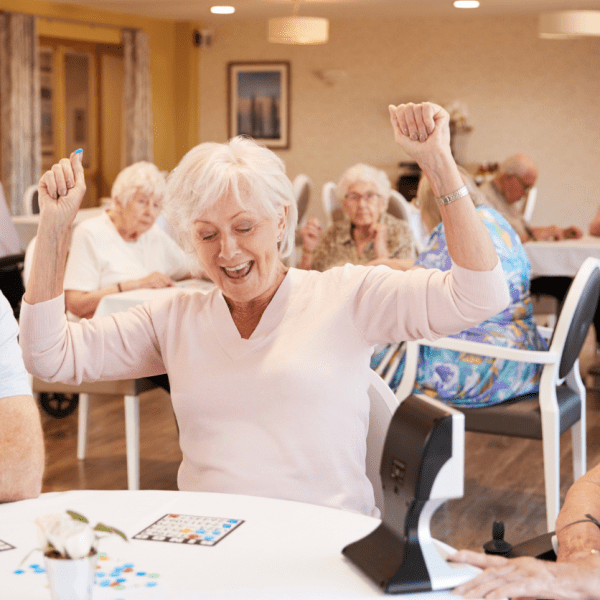
Engaging in puzzles, brain games and classic games like Bingo can be more than just a fun activity. They can also help improve brain function, memory and mental agility.
Read more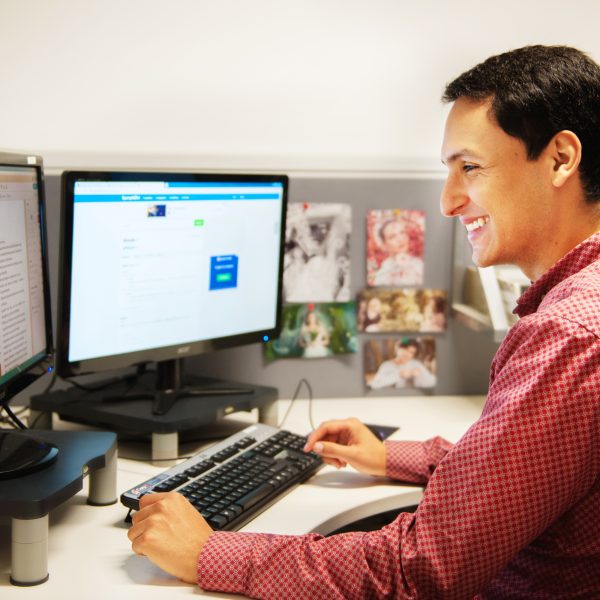
Synapse - Australia’s Brain Injury Organisation, has launched a new website which includes a comprehensive brain injury information hub.
Read more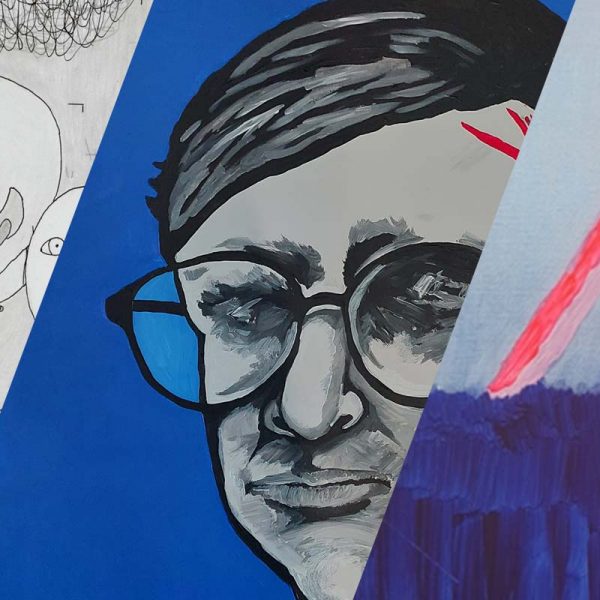
We know art offers the chance to explore ideas and creative concepts. For people living with brain injury, it also provides an incredible opportunity to process and express their experiences – from the early stages through to the challenges and successes of recovery and day-to-day life.
Read more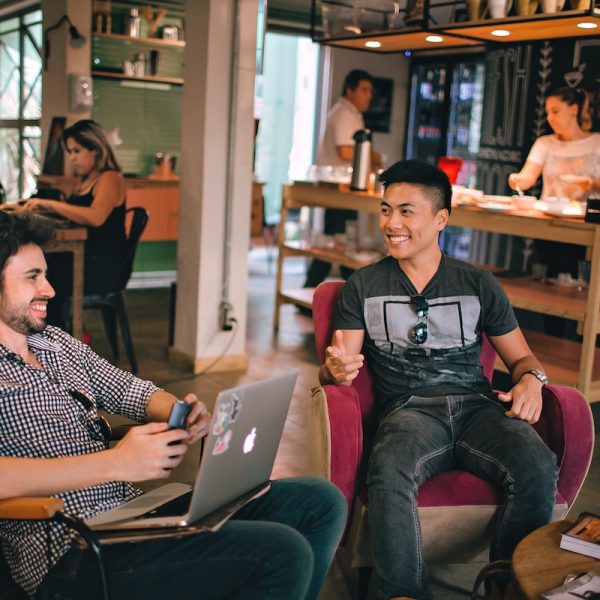
Picture this: You’re stuck at home. Your normal routine is gone, and there’s limits on what you can do and you can’t do. You’ve watched more TV recently than you ever have before in your life. Your life usually has structure – work, study, hobbies, going out with friends, and without that, you’re feeling bored and frustrated. When will this end?
Read more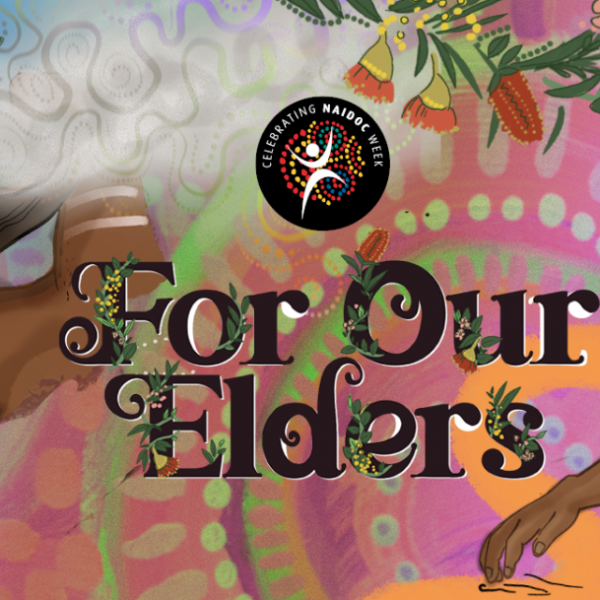
This NAIDOC week we celebrate our Synapse Elders. Our Elders guide and ensure we stay connected to community and culture.
Read more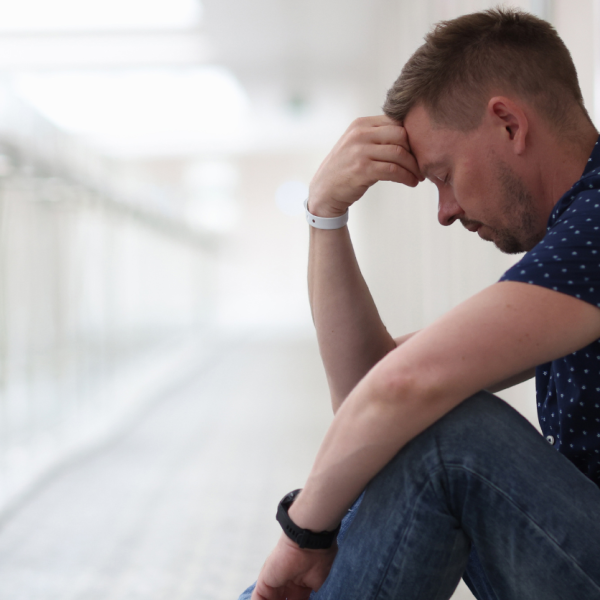
The current justice systems fail to recognise the significant link between domestic violence of both perpetrators, victim survivors, and brain injury.
Read more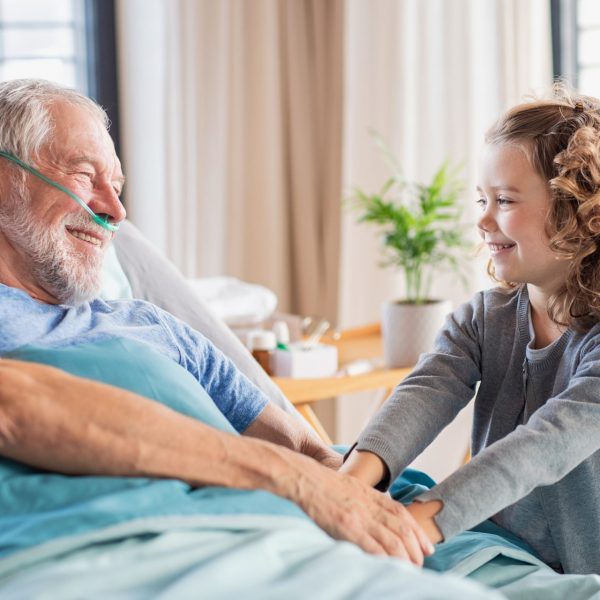
Adjusting to a different life and finding your new normal after brain injury can be a difficult time. People in our Reconnections group often share that it feels like no one around them understands what they are going through.
Read more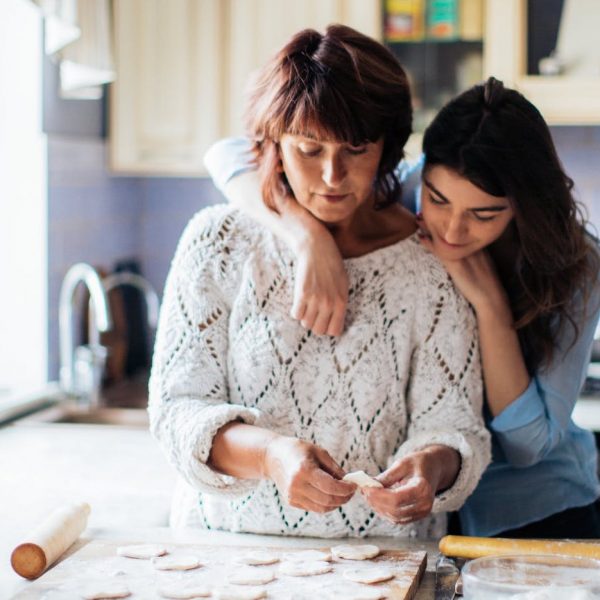
Behaviour changes are part of brain injury for most people, but it’s an aspect that often isn’t fully apparent until you return home and life outside of the hospital routines begins.
Read more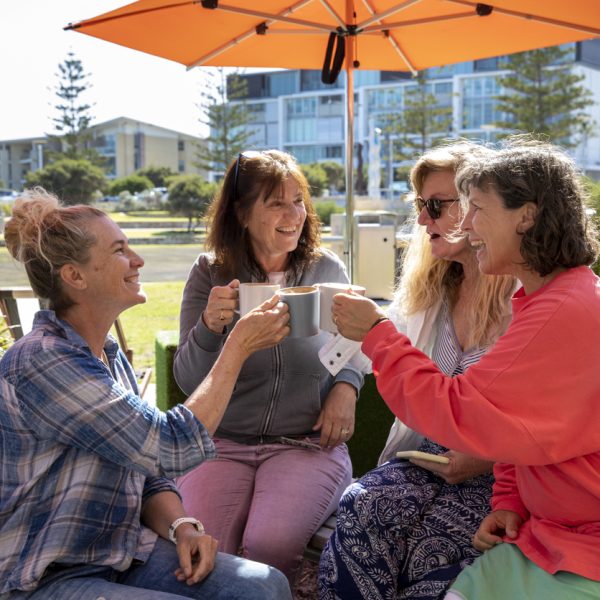
No matter what the month there’s always a great excuse to focus on true friends and strengthening your connection with them. This article explores how you can help your friends better understand you after your brain injury and ways you can explore new friendships.
Read more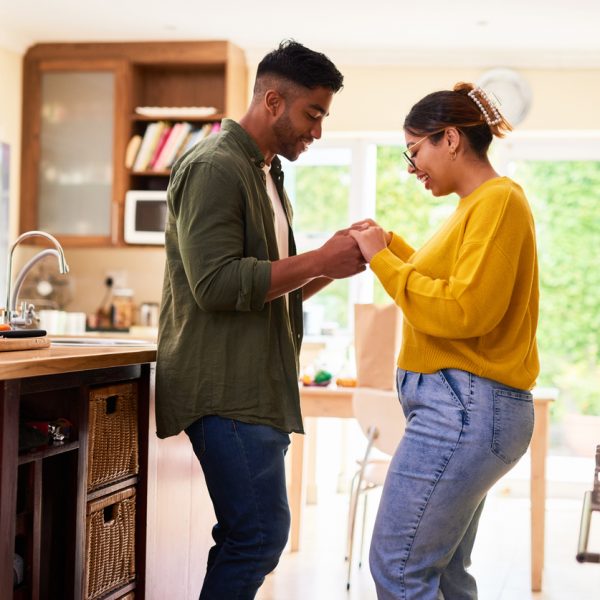
Relationships are so important as they make us feel supported, connected and loved. In this article we’ll talk about how a brain injury may impact the different relationships in someone’s life.
Read more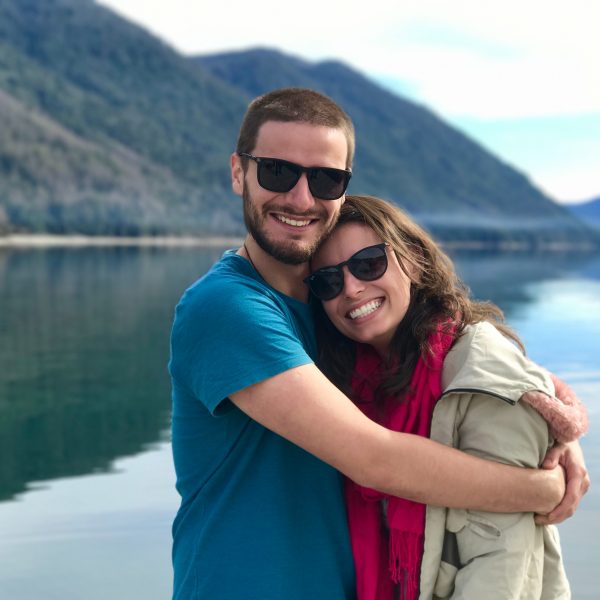
Everyone wants to be loved, it's a fundamental human need. We all need people to talk to and laugh with, spend time with, share ideas, worries and joys. But after brain injury our relationships with partners, family and friends can often change quite significantly.
Read more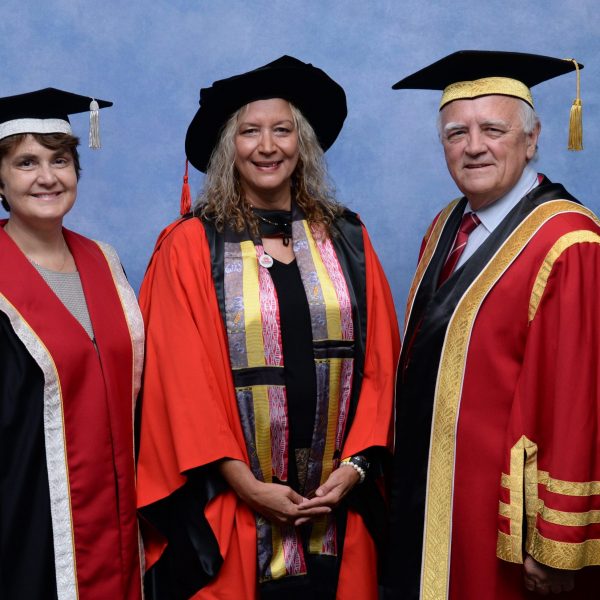
Synapse—Australia’s Brain Injury Organisation CEO, Jennifer Cullen, has been awarded an honorary degree of the Doctor of the University from Griffith University.
Read more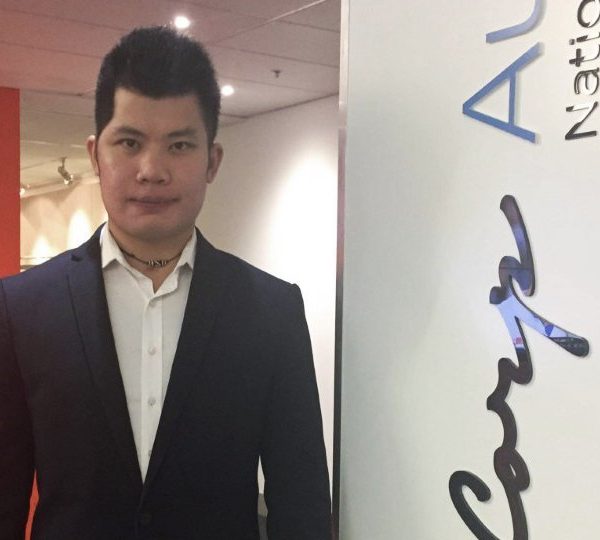
Danny speaks about his journey back to work after a brain injury and offers his tips on navigating the recruitment process.
Read more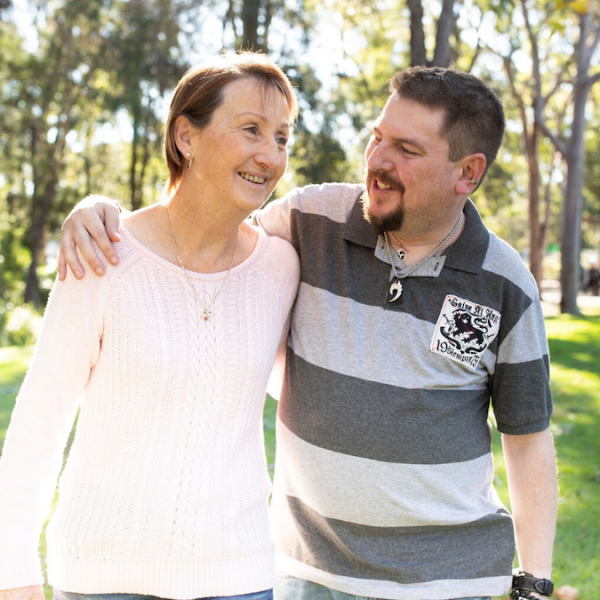
This year most of the world is experiencing what it is to be socially isolated, which is something that people with brain injury often experience. We asked the members of our Reconnections support groups to share with us their experiences with social isolation and what they did about it.
Read more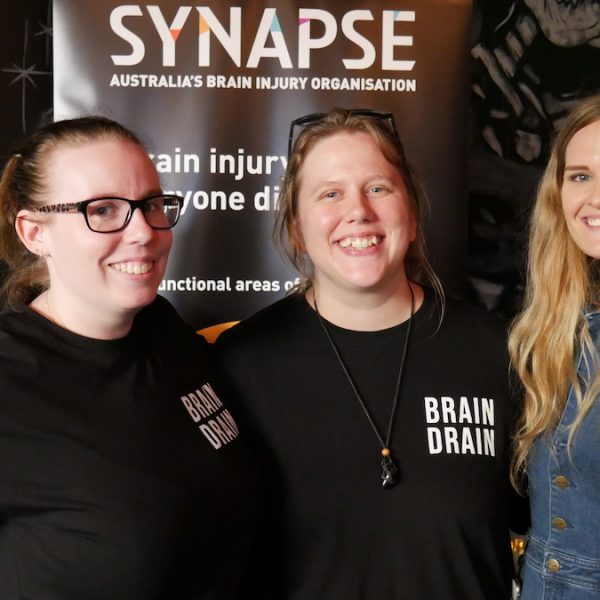
Brain Drain Co. hosted their inaugural Market Day in support of Synapse on December 21st at Crowbar in Brisbane’s Fortitude Valley. The afternoon event saw local creators and musicians come together to raise awareness of the work Synapse does to support families impacted by brain injury.
Read more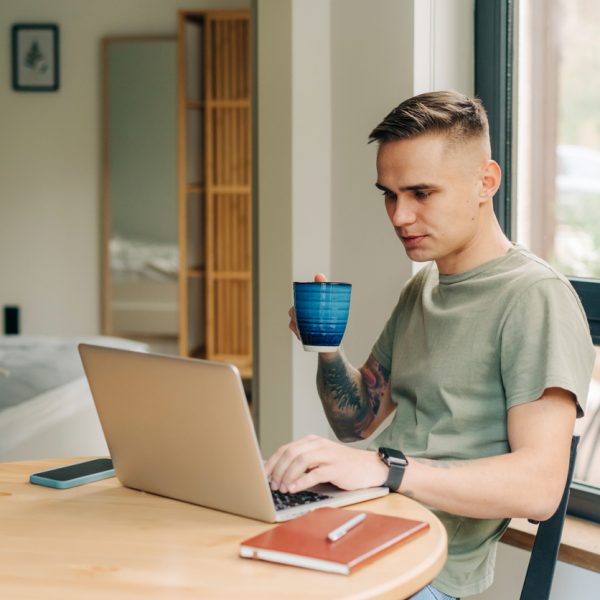
As individuals navigate the complex landscape that is recovering from a brain injury, they often find themselves in need of specific information and services to better understand and manage the cognitive and physical impacts.
Read more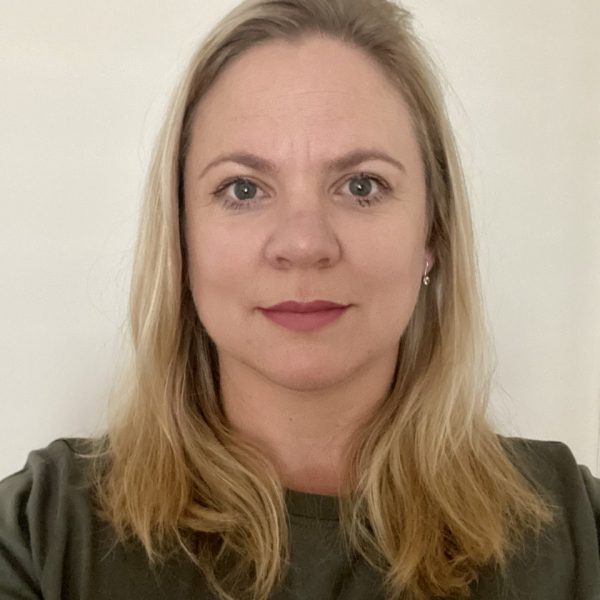
We recognise how important it is for people impacted by brain injury to connect with others who understand. Our Peer program is making this a reality for people across a range of activities, in-person and online
Read more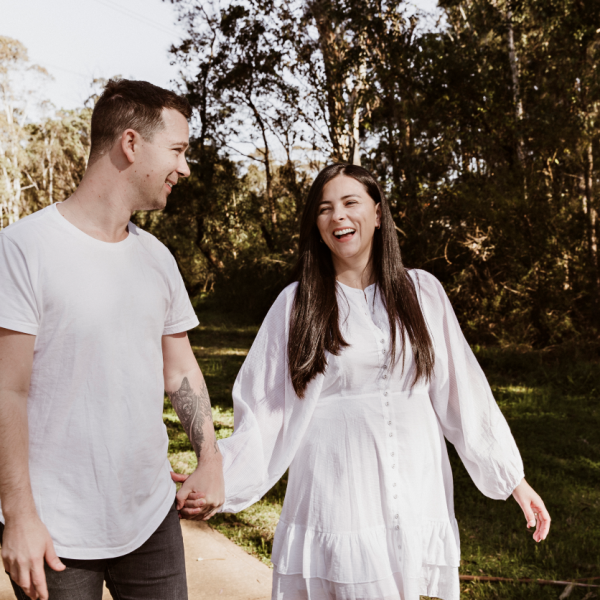
Jayden was in a motorcycle accident in 2017, which saw him suffer a brain injury. In 2019, two years after his injury, Jayden met his now wife Milena.
Read more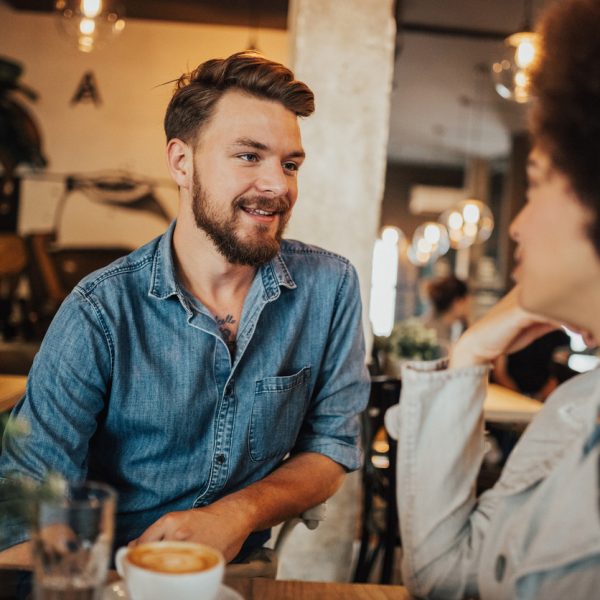
Brain injury has a profound and underestimated impact on society. It’s important that everyone plays their part and does what they can to understand brain injury and support people in meaningful and impactful ways.
Read more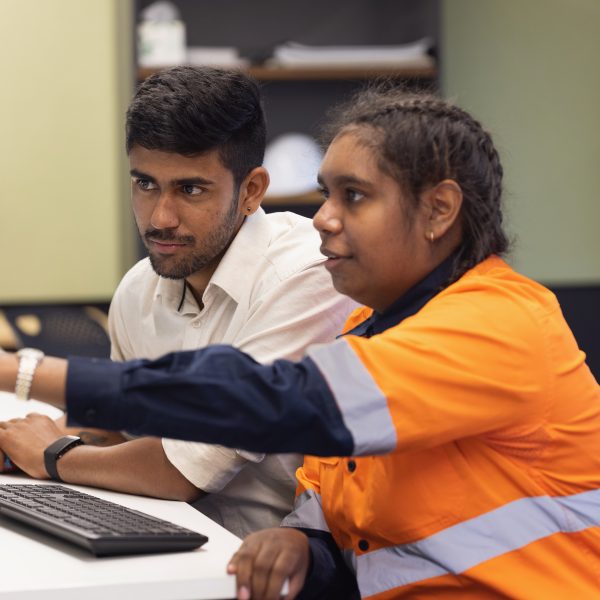
With the right support and resources, you can successfully transition back into the workforce after a brain injury.
Read more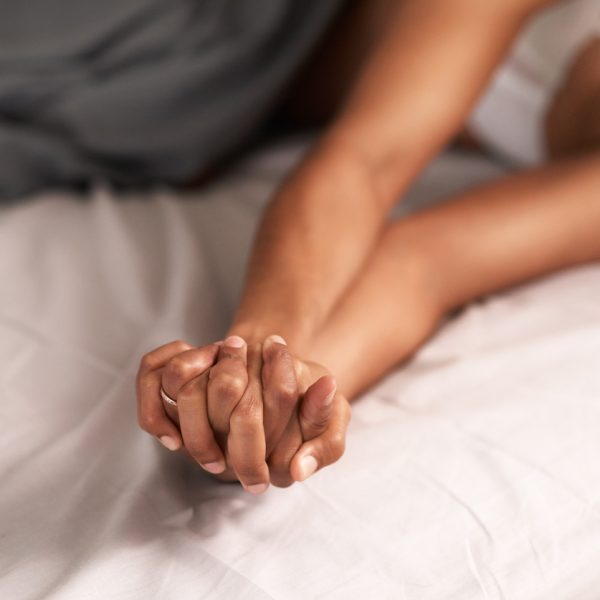
Brain injury and sex can still carry a great deal of stigma. Yet, it's important to talk about how sex and sexuality changes after a brain injury.
Read more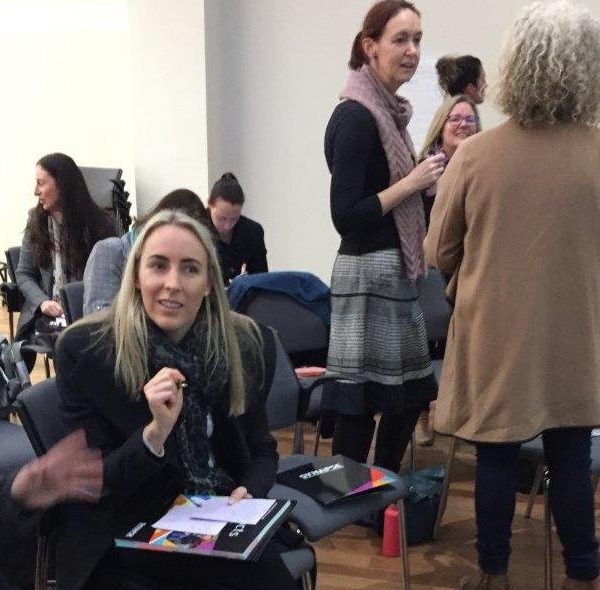
Brain injury professionals gathered recently for Synapse Western Australia’s inaugural network meeting to share knowledge and collaborate on improving the experiences of people impacted by brain injury.
Read more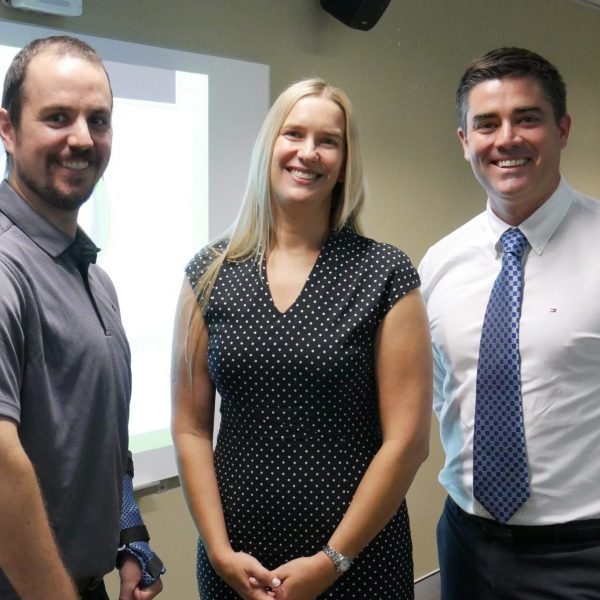
Our recent Synapse Brain Injury Network event featured speakers discussing their professional experience with working within the NDIS system, and getting the best outcome for their clients.
Read more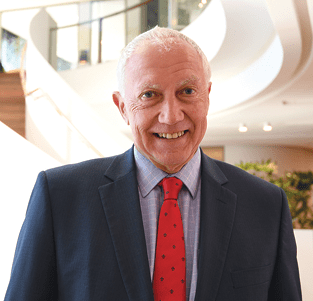
While we all know that road safety is important, those who survive serious motor vehicle accidents and go on to live with significant conditions like brain injury are an often-forgotten figure.
Read more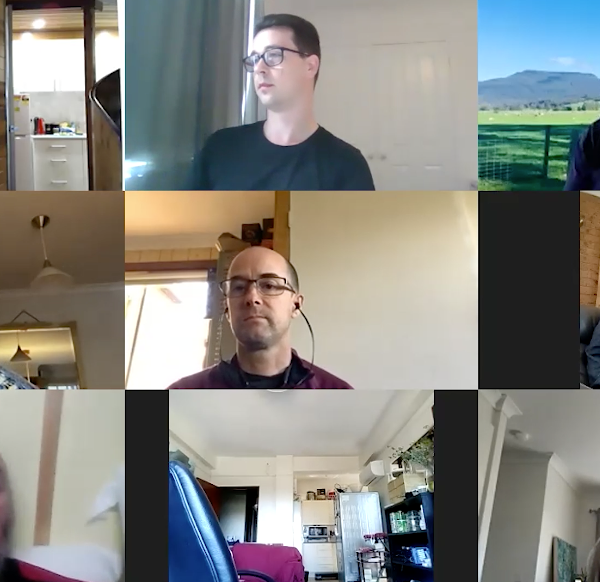
We know that for many living with brain injury, it can be difficult to find and connect with others who have similar experiences. Our online peer group chats have become an important and meaningful way for our communities to connect over a cuppa.
Read more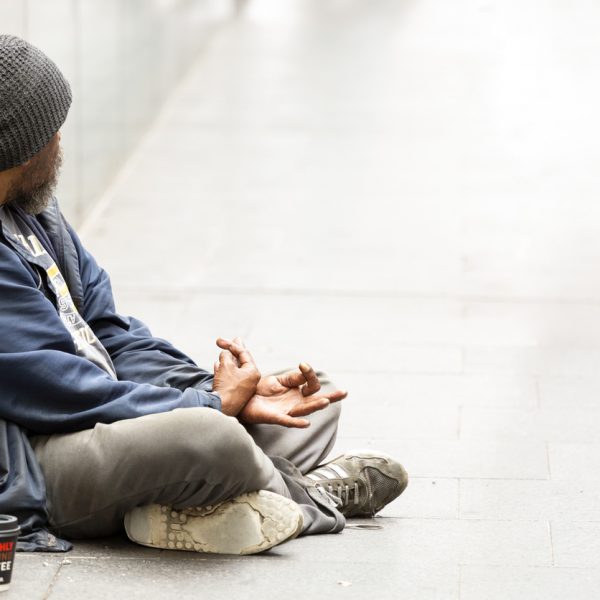
Brain injury can impact someone at any stage of life and no two brain injuries are ever the same. Without the right support, knowledge and opportunities at the key milestones in life, people living with a brain injury can fall into the cycle of vulnerability.
Read more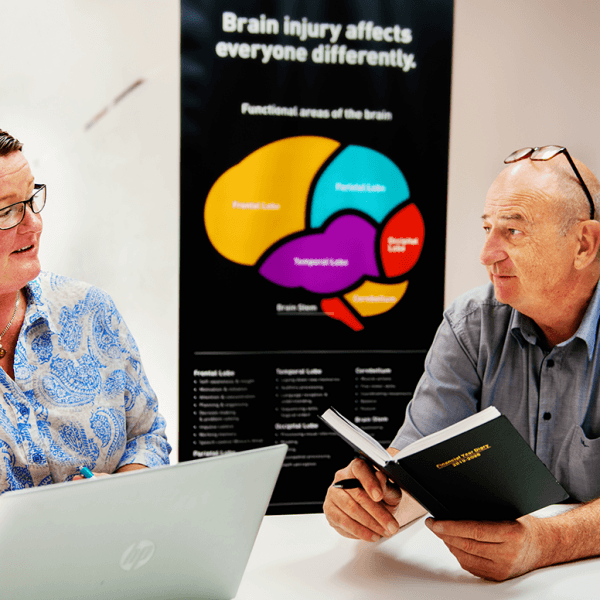
In late 2019 Synapse was awarded a three-year, $1.8 million Information, Linkages and Capacity Building (ILC) grant from the National Disability Insurance Scheme (NDIS) to deliver a National Information Program focused on expanding brain injury information services over the next three years.
Read more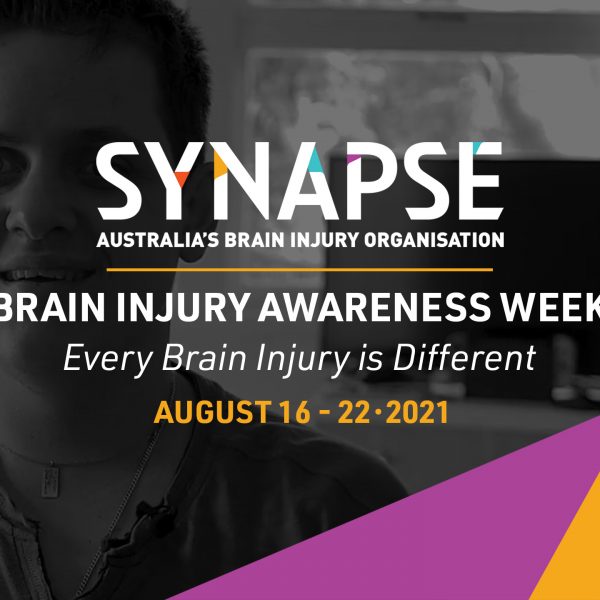
Next week is Brain Injury Awareness Week and this year’s theme is Every Brain Injury is Different. This pivotal advocacy week focuses on creating awareness in the community about the 700,000-plus Australians impacted by brain injury and their daily struggle to live in a world where their “disability” is often invisible.
Read more
The key recommendations relating to younger people with disability, outlined in the newly released final report of the Aged Care Royal Commission, have been warmly welcomed by the Summer Foundation, Youngcare and Synapse.
Read more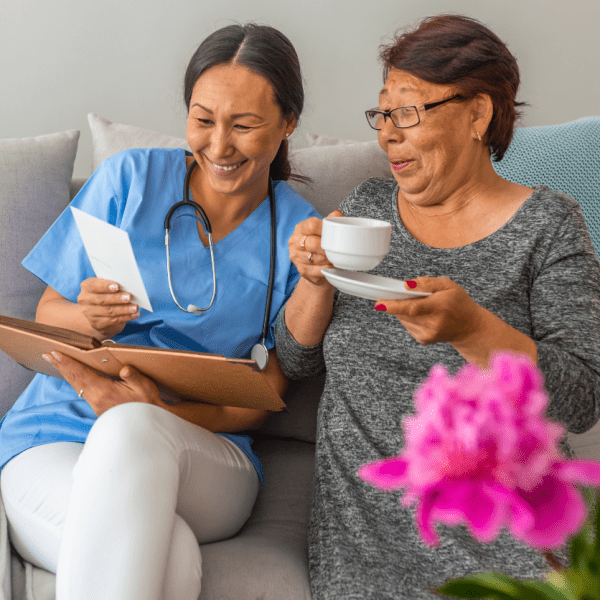
This week we take a moment to celebrate and acknowledge the incredible efforts of those who care for someone living with a brain injury for National Carers Week.
Read more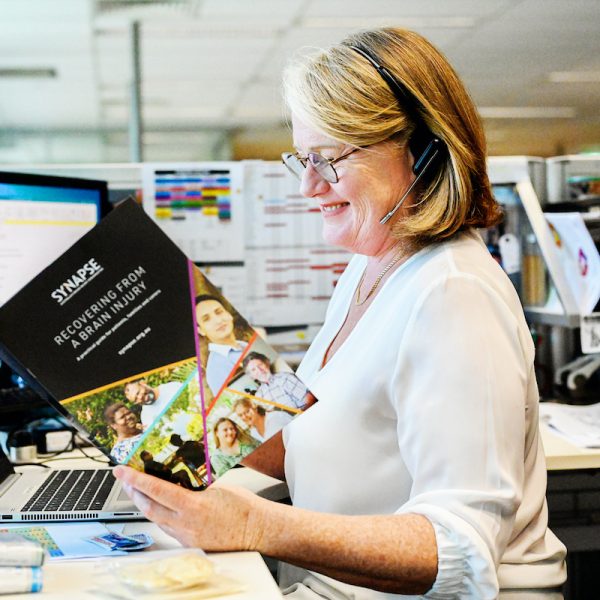
When brain injury impacts your life or the life of someone you care for, there can be a lot of complex circumstances and systems to navigate. Between adjusting to life with a brain injury and finding suitable support, knowing where to start or who to turn to can be difficult.
Read more
Synapse is sub-contracted to Griffith University to run the Assessing the Disability Needs of Indigenous Prisoners (ADNIP) project, which is funded by the Department of Social Services. This is a national project examining the methods and processes for the identification of disability and provision of support for Aboriginal and/or Torres Strait Islander prisoners and formerly incarcerated people.
Read more
We know that of the half a million people in Australia who live with a brain injury, more than two-thirds of them are men.
Read more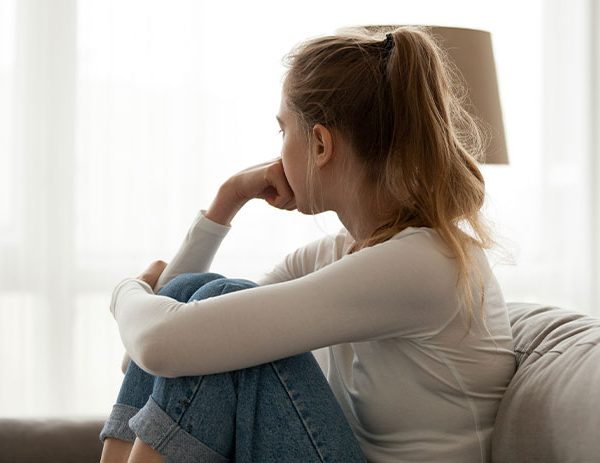
The leaking of draft changes to the NDIS strikes a blow not just to those potentially affected, but at the very heart of what could, and should, be a life and society-changing scheme.
Read more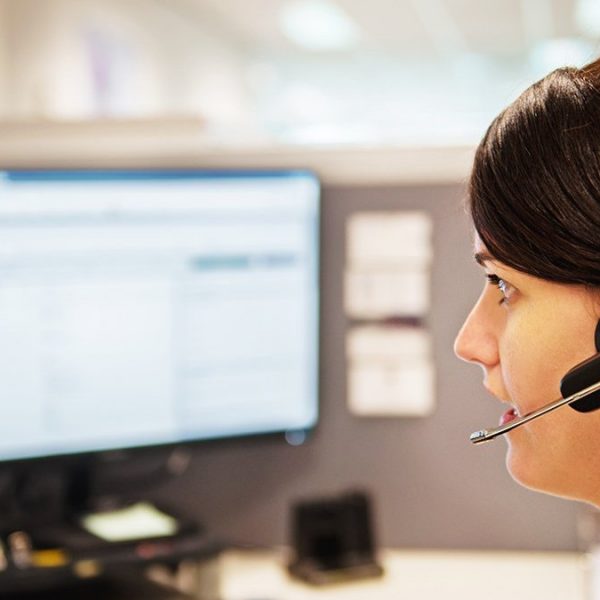
2020 is shaping up to be a big year for Synapse as we roll out the three-year $1.8 million Information, Linkages and Capacity Building (ILC) NDIS grant to extend our brain injury information and referral service nationally.
Read more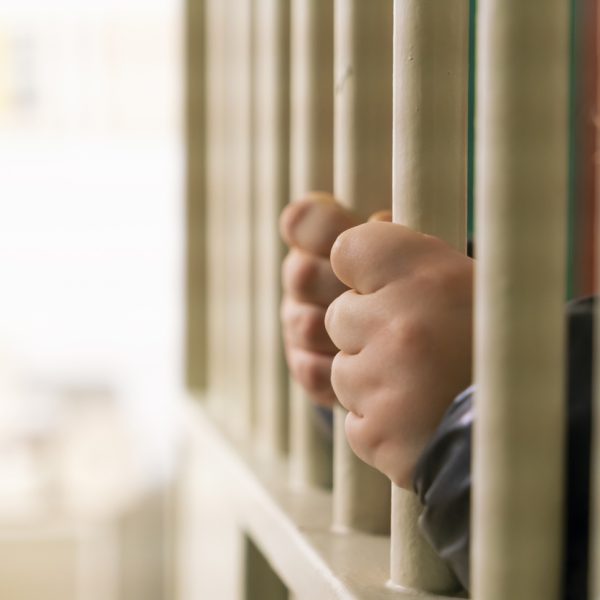
Synapse believes building more youth detention centres will see young people impacted by brain injuries continue to be discriminated against.
Read more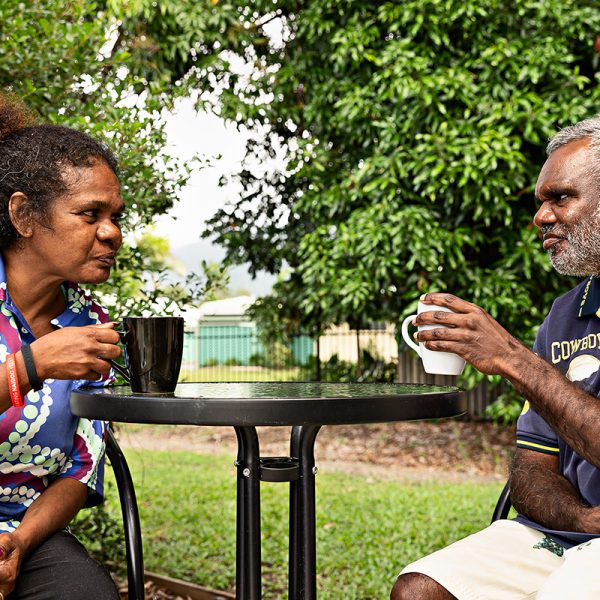
Plans to introduce independent assessments to access the National Disability Insurance Scheme (NDIS) will amount to a ‘doubling down’ on exclusion for some of Australia’s most marginalised peoples.
Read more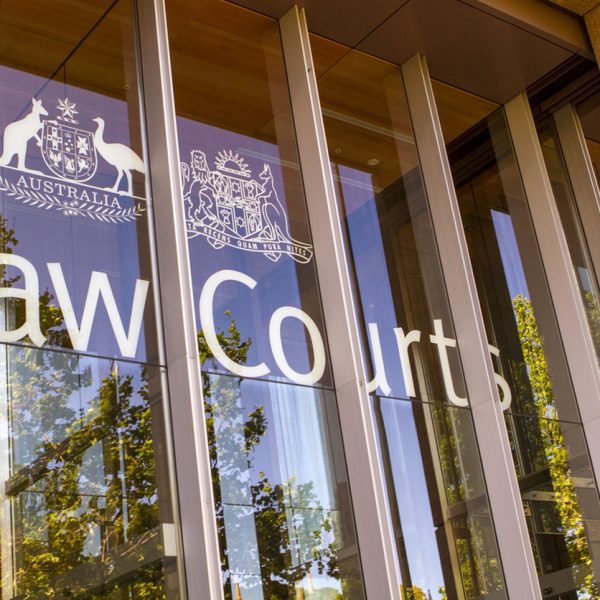
The issue of brain injury while incarcerated is complex and disproportionately affects Aboriginal and Torres Strait Islander prisoners. Brain injury currently receives relatively little recognition in the criminal justice system.
Read more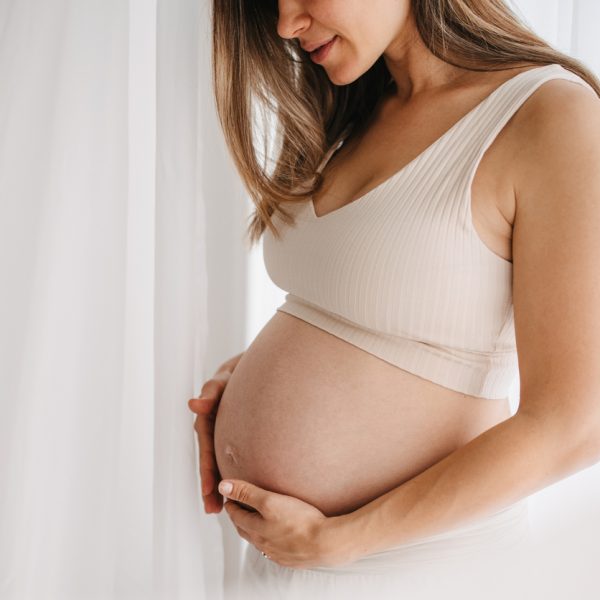
Fetal Alcohol Spectrum Disorder (FASD) has a profound impact on individuals from birth and as they age. Understanding FASD as a brain injury is instrumental in achieving better outcomes for people.
Read more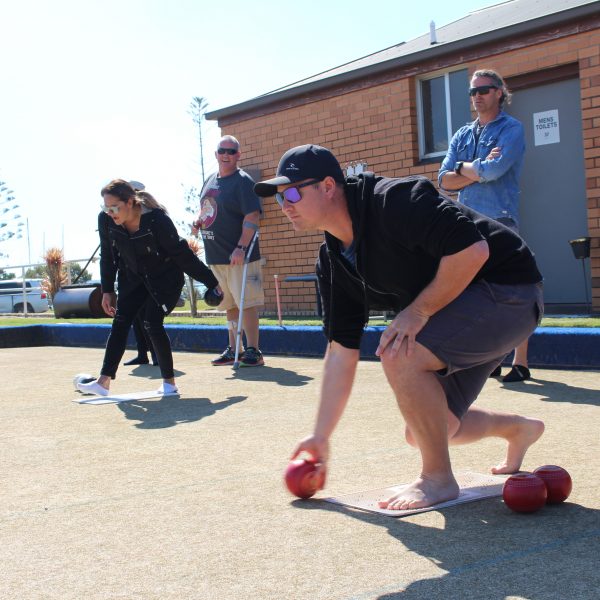
Brain Injury Awareness Week runs from 19-25 August and heralds an opportunity to raise awareness for the 700,000 Australians who live with a brain injury.
Read more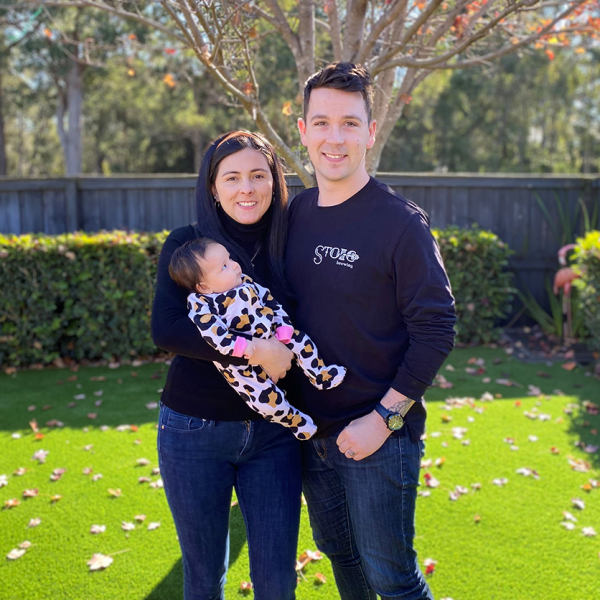
Our BrainBank Panelist Jayden is a proud dad of two beautiful girls. He sat down with our team to talk about how he worked to be an active and engaged parent and dad while living with a brain injury.
Read more
The Queensland Government’s response to be tough on crime comes with a harsher cost to the lives of many children across the state, particularly those who have Fetal Alcohol Spectrum Disorder (FASD), brain injuries, or other cognitive impairment.
Read more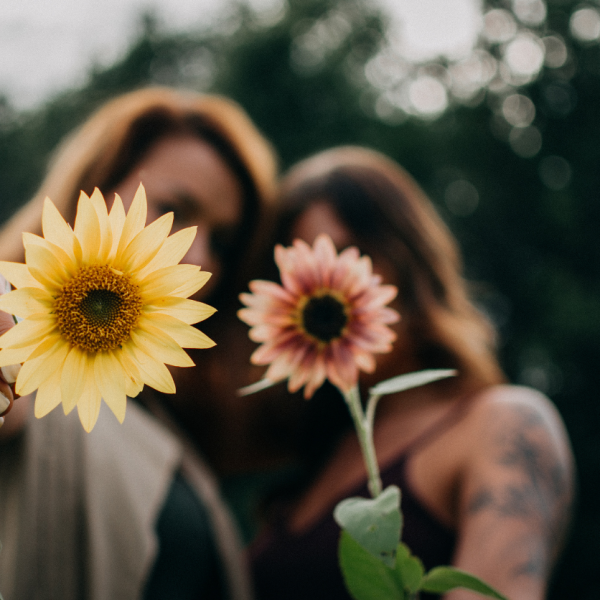
As we celebrate Women’s Health Week 2024, it’s vital to shine a light on a critical issue that often remains hidden: domestic violence and its concerning link to brain injury in women.
Read more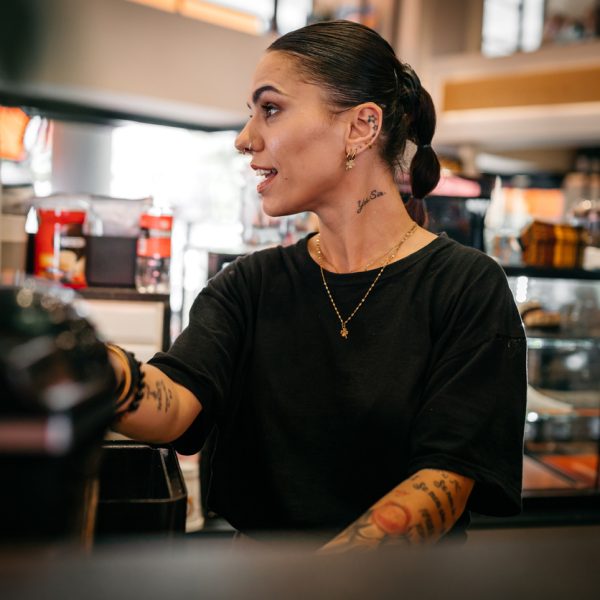
Brain injury is an invisible or hidden disability, so many of the impacts aren’t visible and often rely on the person disclosing this information when applying for, starting, or during their employment.
Read more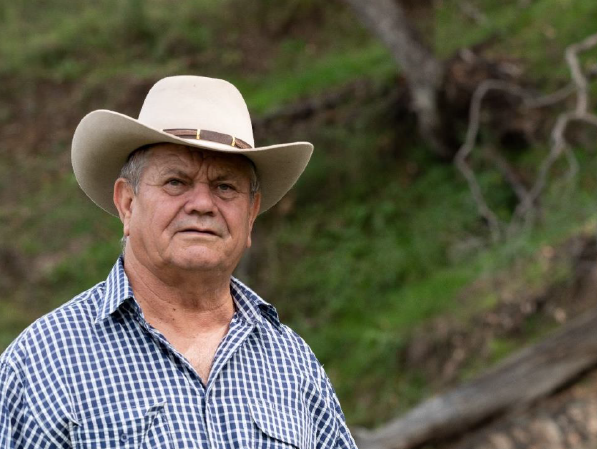
The Stroke Foundation has launched a new resource specially designed to help Aboriginal and Torres Strait Islander people live well after stroke.
Read more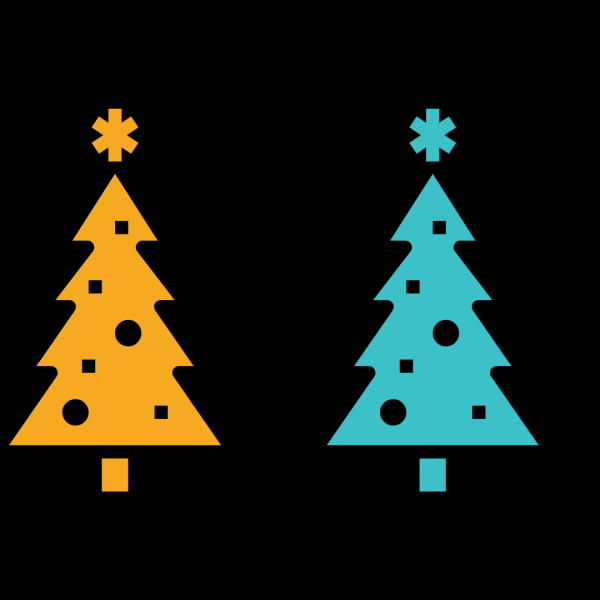
Christmas can be overwhelming at the best of times, but living with ABI can make the chaos of shopping, noise and lights unbearable. If you or someone you care for has an ABI, there are a few ways you can help prevent Christmas cheer descending into seasonal struggle.
Read more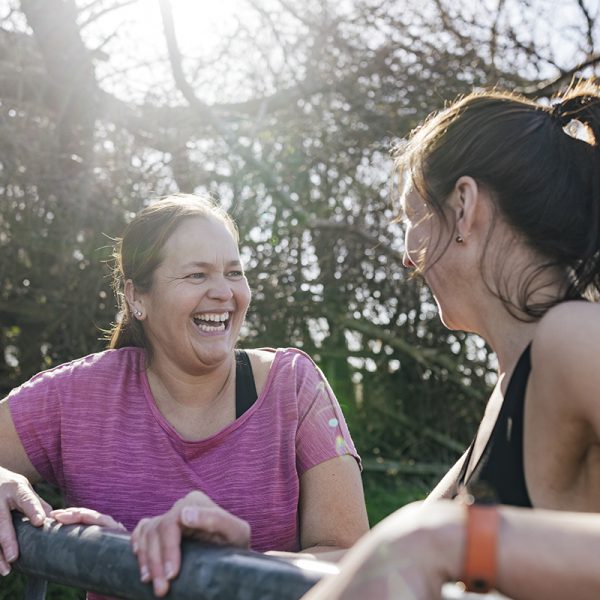
The changes people can experience when living with a brain injury can sometimes make caring for them overwhelming.
Read more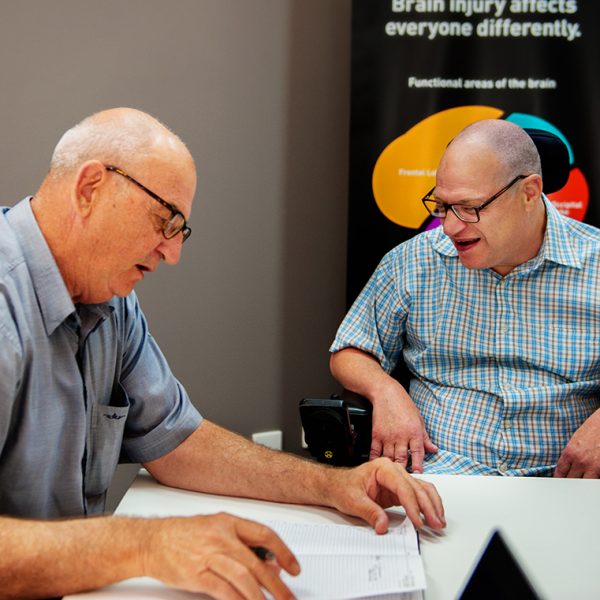
The Minister for the National Disability Insurance Scheme (NDIS), the Hon Stuart Robert, recently announced the introduction of compulsory Independent Assessments for people with disability to be able to access the NDIS, and as part of the plan review process. Synapse opposes this, and here’s why.
Read more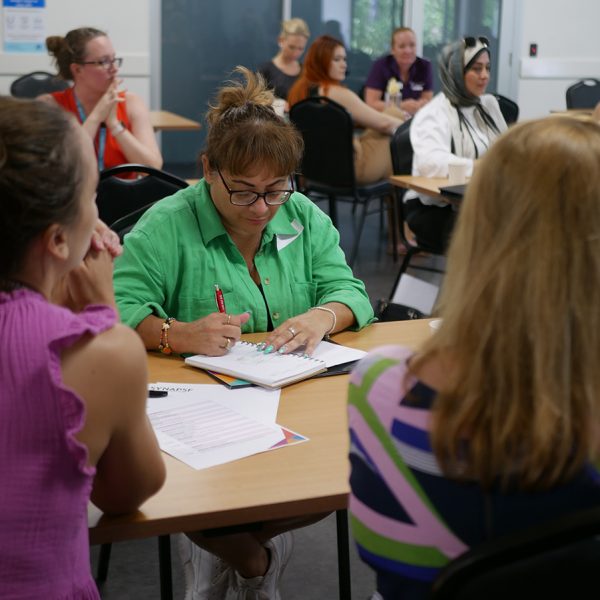
Synapse helps health professionals stay up to date with the latest research and developments through brain injury training.
Read more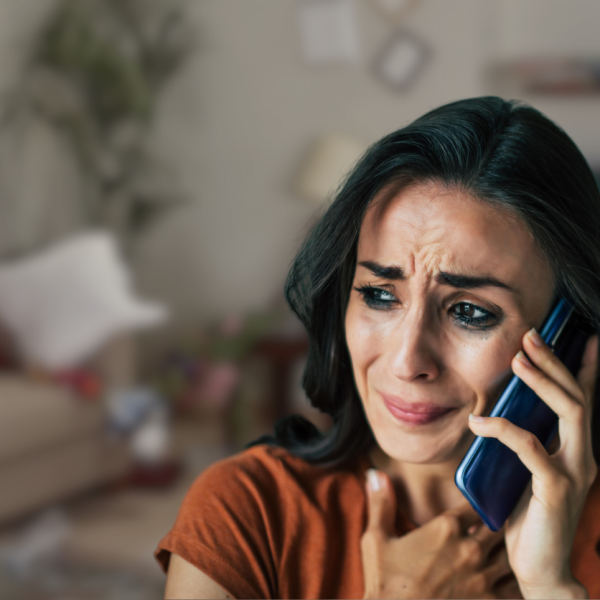
The raw picture of domestic violence in Australia is not a pretty one, with one report from the Australian Institute of Health and Welfare revealing 1 in 6 women have experienced physical and/or sexual violence since the age of 15 – roughly 1.6 million women.
Read more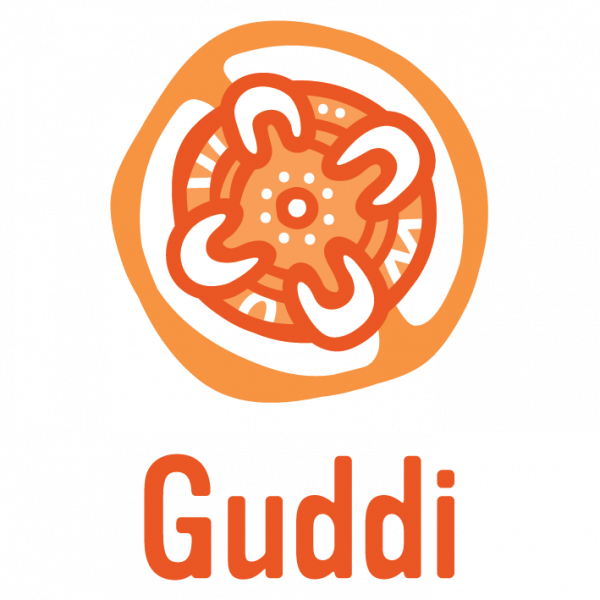
Brain injury is often called the ‘hidden’ disability due to its lack of physical evidence of injury, making it difficult to screen for and assess in Australian prisoners. Yet, having a brain injury in the criminal justice system makes an instrumental difference on the way prisoners are assessed and treated in and out of a prison.
Read more
Synapse Family Liaison Officers provide practical support and information to family members and carers of people who have brain injury.
Read moreRegular in person and online meet-ups for those in WA wanting to connect with others living with a brain injury.
Read more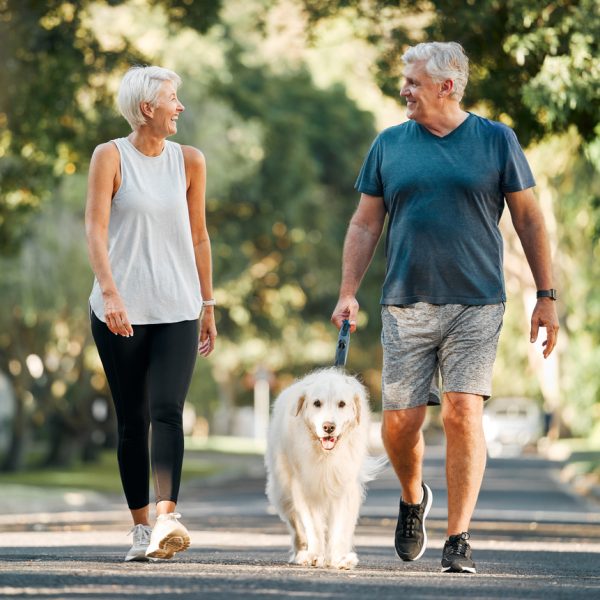
The process of ageing is a normal part of life, but it can impact people living with a brain injury differently. Older individuals with a brain injury can often experience poor memory and can have periodic forgetfulness.
Read more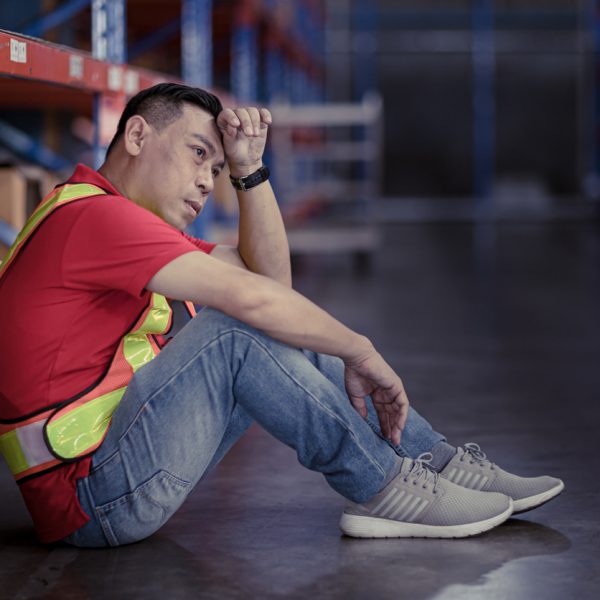
Fatigue is one of the most common symptoms of brain injury. When you live with a brain injury, the tiredness you feel is often cognitive fatigue. In this article, we’ll discuss what cognitive fatigue is and how you can manage and combat it in everyday life while living with a brain injury.
Read more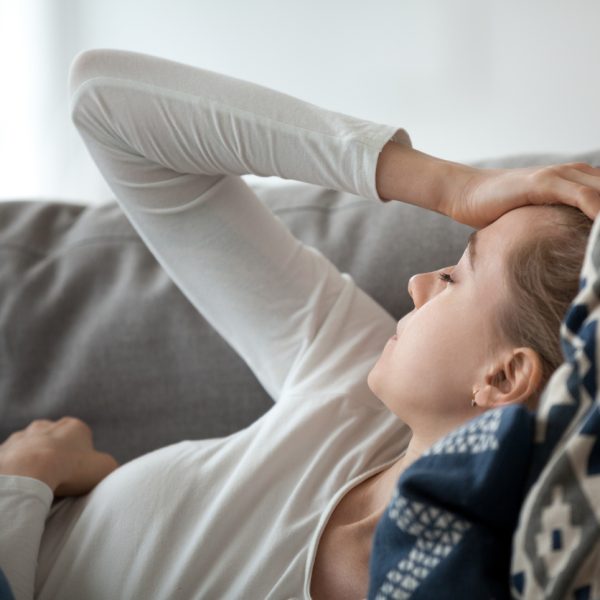
“1 in 5 Australians aged 45 and over are living with persistent, ongoing pain.”
Read more
The Australian Government’s decision to establish a task force to end the practice of placing young people with disability in aged care is an important step.
Read more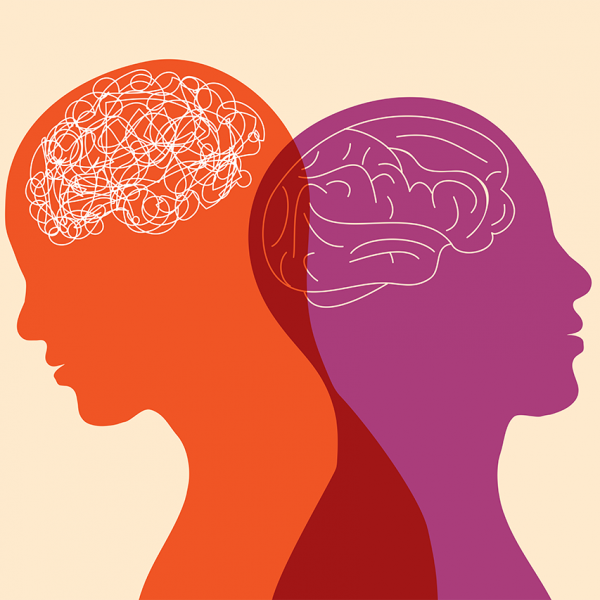
Brain injury is a known risk factor for developing a mental illness, yet the two are not the same.
Read more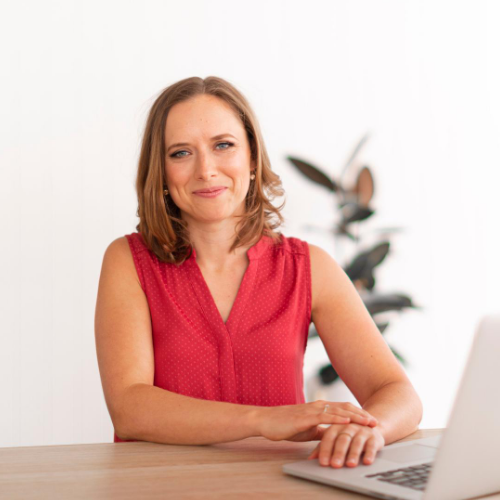
Reintegrating into society after chronic illness is a challenge that Sarah faced after years of living with a brain injury and Chronic Fatigue Syndrome (ME).
Read more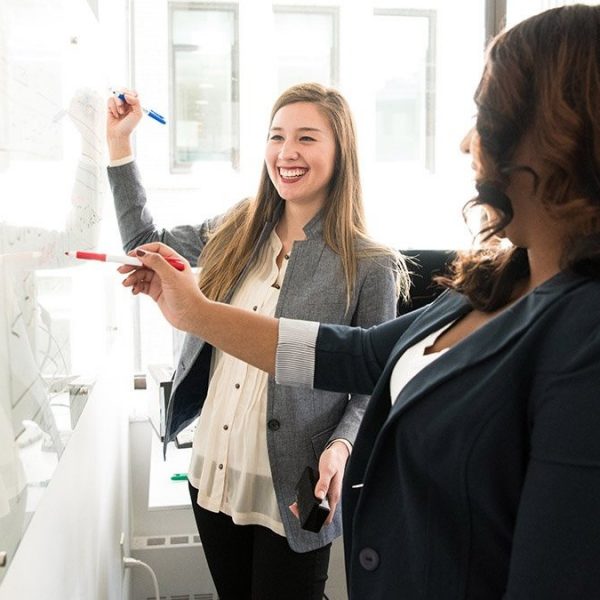
While returning to work may not be possible or desired for all carers, we wanted to hear the experiences of those in our community who have returned to work and the things they had to consider along the way to balance their time and responsibilities.
Read moreCome, join us and connect with others living with a brain injury. Carers, families, and partners are also welcome.
Read more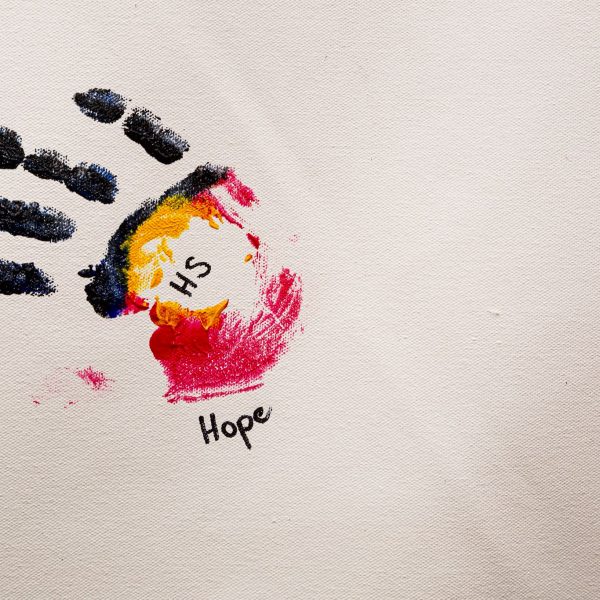
We are committed to the work we do together with Aboriginal and Torres Strait Islander communities.
Read more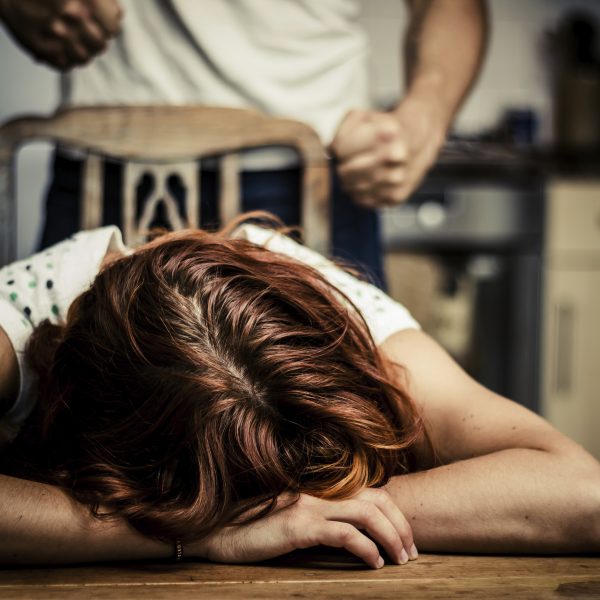
During May, Synapse - Australia's Brain Injury Organisation, is raising awareness about the high rate of brain injury sustained by victims of domestic violence.
Read more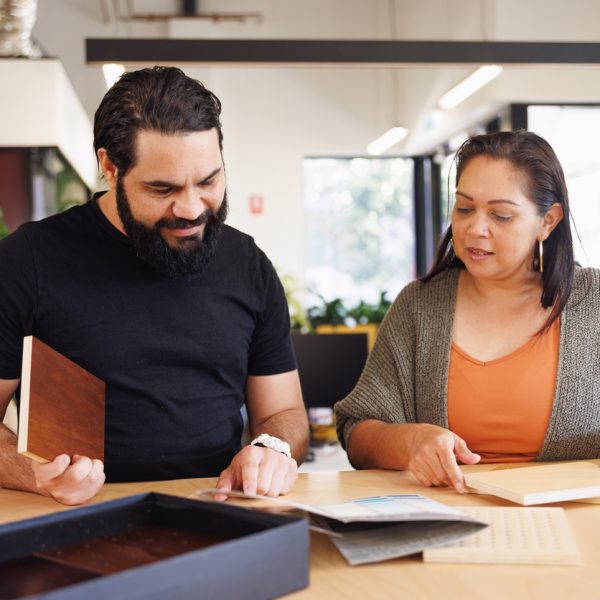
This article explores what you can expect at different stages of accessing and using you NDIS plan as someone living with a brain injury.
Read more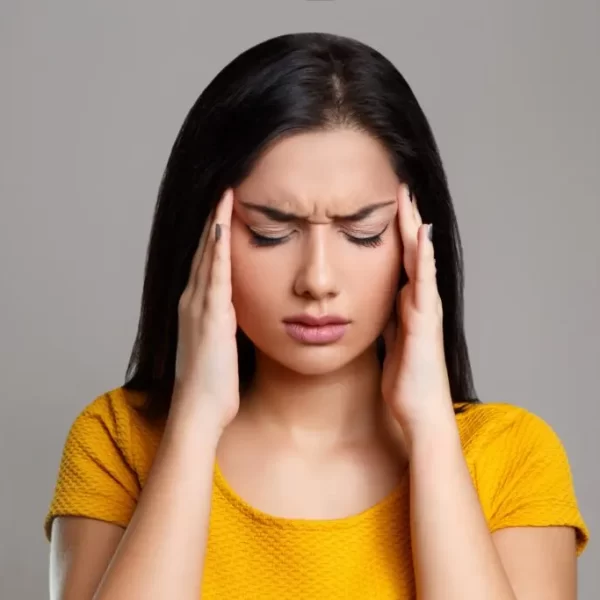
Migraines and headaches are extremely common in people who have experienced a brain injury, with 30 – 90% of people reporting symptoms.
Read more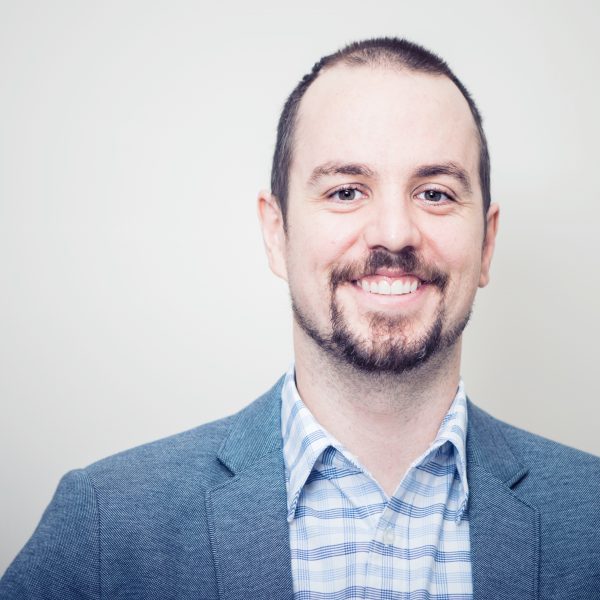
If you missed Tim Cudmore’s Afternoon Shift talk on Brain Injury’s invisible disabilities on November 3rd, the recording is now available.
Read more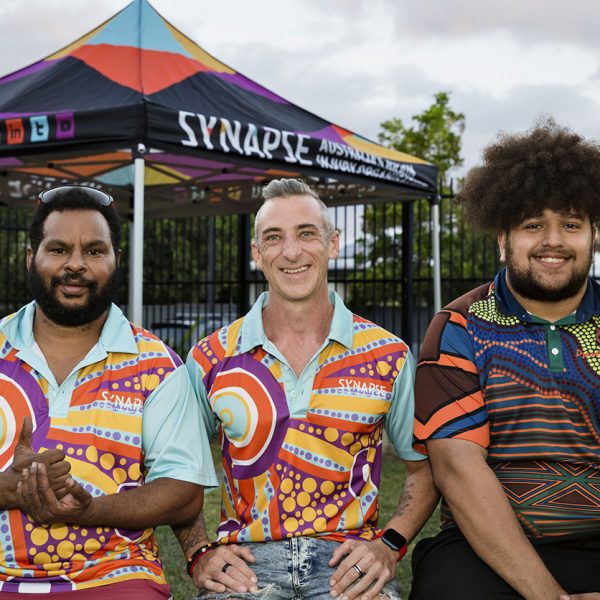
Synapse has been awarded the Just Future grant, which aims to better understand the needs of Aboriginal and Torres Strait Islander people with possible cognitive impairment to assist in informing sentencing and bail requirements.
Read more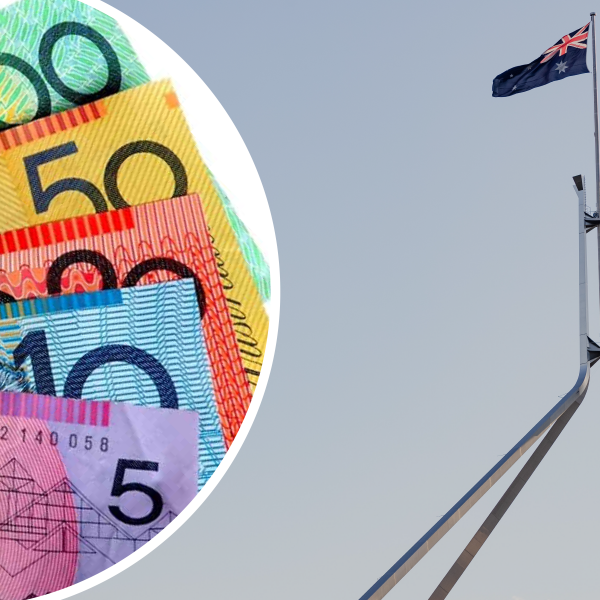
Synapse has broken down the key elements in this year’s budget that are relevant to those living with brain injury and their carers below to help our community understand how this budget affects them.
Read moreCome, join us and connect with others living with a brain injury. Carers, families, and partners are also welcome.
Read more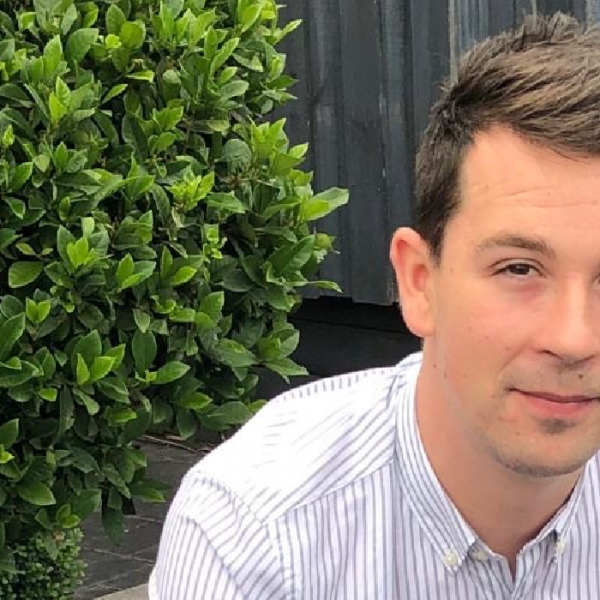
Before Jayden’s accident he spent most of his free time either motorbike riding, playing footy or playing the drums in a cover band with his mates. After his accident, he found that these were not an option for him anymore.
Read more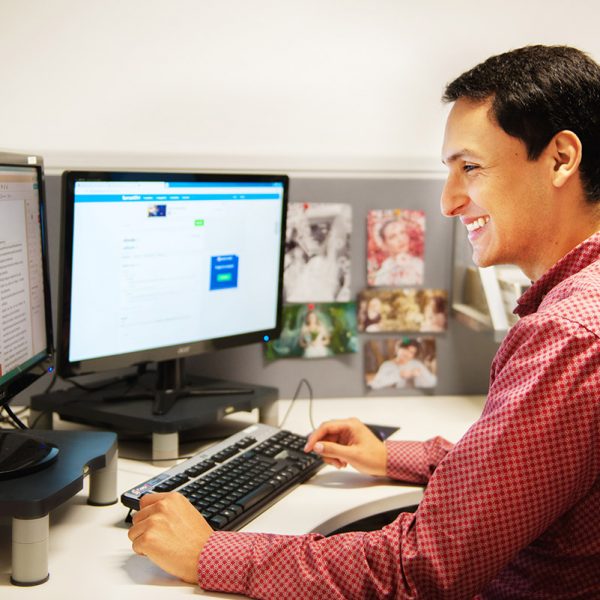
We recently partnered with the government-funded initiative Healthdirect Australia to provide quality brain injury information and advice to people across Australia.
Read moreJoin us for an interactive, hands-on event and build new connections! We will share some of the ways we all support people living with brain injury in their transition from hospital to home, and improve access to services through the strengthening of support networks.
Read more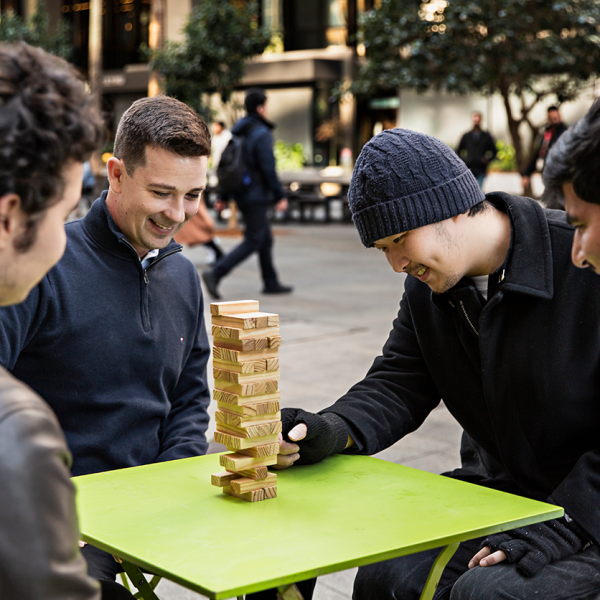
In September, the Disability Royal Commission published their Final Report with mention of Synapse's advocacy work and projects.
Read more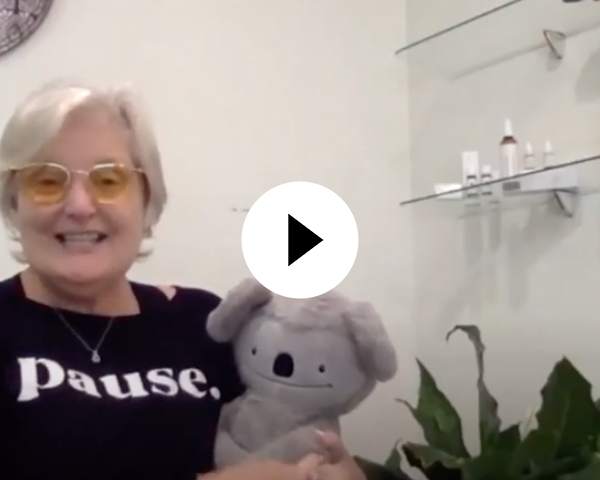
We hosted a free online Chair Yoga class with our guests Julie Clark and Claire Cunneen (All Ability Yoga). Yoga is for every BODY. Join in for this 30 minute yoga and 15 minute meditation for all abilities.
Read more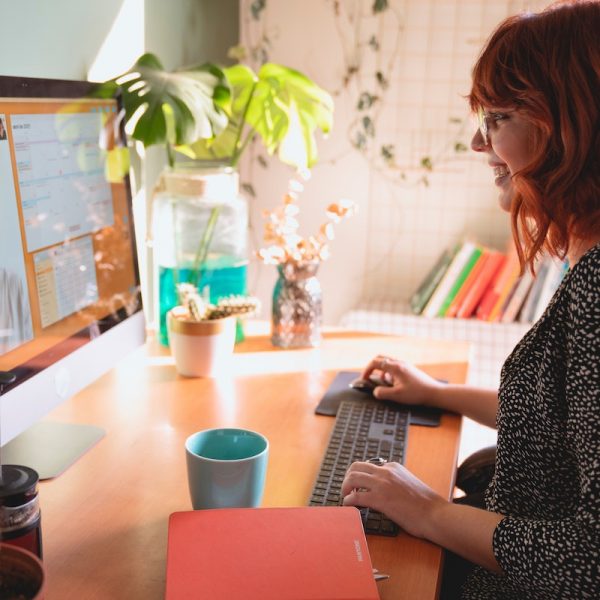
The soon to be launched BrainBank panel is a peer panel, operated by and for people who have lived experience of brain injury.
Read moreJoin us and connect with other family, friends and support networks of people living with a brain injury across Western Australia.
Read moreRegular in person and online meet-ups for those in WA wanting to connect with others living with a brain injury.
Read more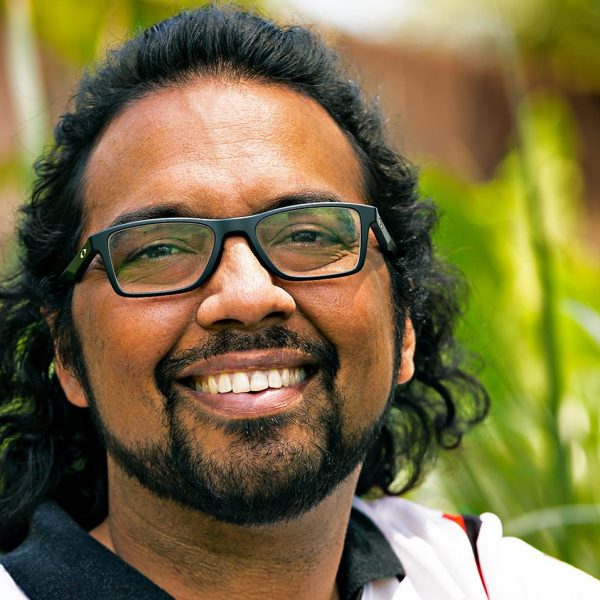
Jamen started working at the Community Living Initiative in Cairns two-months before it opened to tenants in 2017. His role is to mentor the team working at the Community Living Initiative and act as a conduit between the team and tenants.
Read moreIn this online session, Pauline Manley from New Moves Wellness will provide relaxation and gentle movement for carers and/or family members of people with a brain injury.
Read more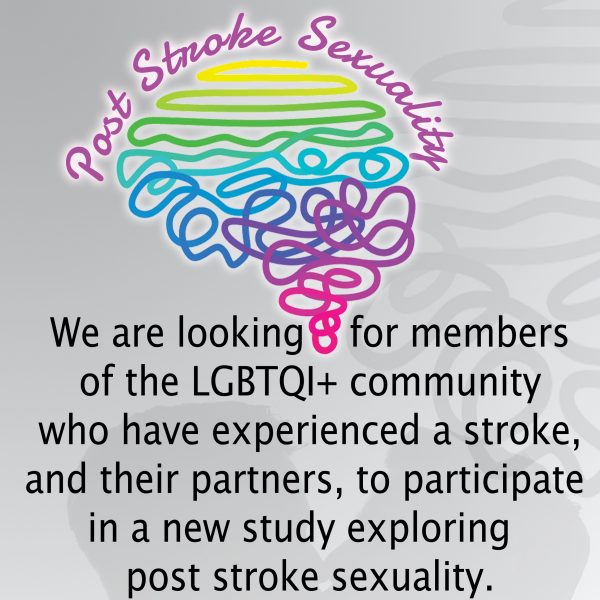
Sydney University is conducting a research study about the experiences of sexuality post stroke to assist with the ongoing development of sexual rehabilitation for future stroke survivors within the LGBTQI+ community.
Read more
On August 17, we had an art therapy workshop in our Peer to Peer support group.
Read more
Aboriginal people can sometimes experience challenges when connecting with and engaging services. These challenges often occur when services are developed without connection to local culture and community.
Read more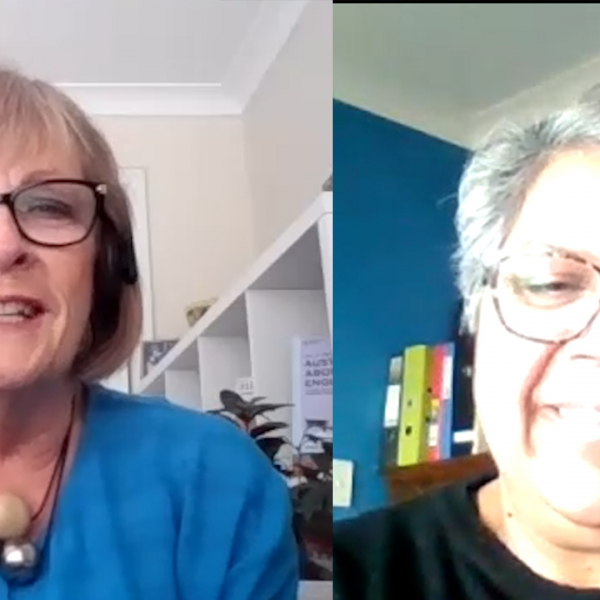
In this special interview Professor Beth Armstrong and Kerri Colegate discuss their work around communication difficulties after brain injury and stroke, with a particular focus on the experiences of Indigenous Australians.
Read more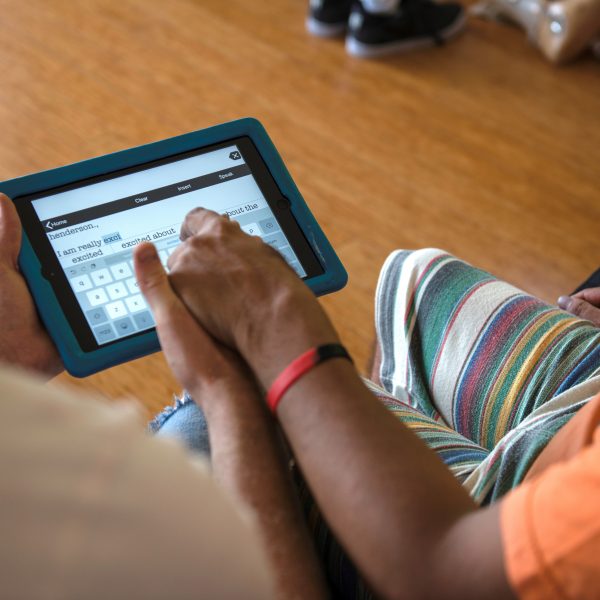
After recently being awarded an Information, Linkages and Capacity Building (ILC) grant from the National Disability Insurance Scheme (NDIS), Synapse is working with the brain injury and disability community across Australia to deliver a unique, comprehensive brain injury Information Hub.
Read more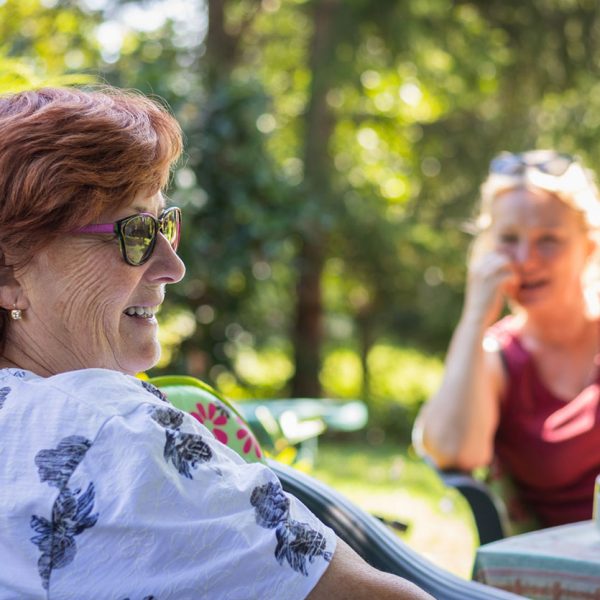
Misconceptions about the causes and impact of brain injury can be damaging and stop older Australians from seeking the support they need. Ageing Australians do not need to struggle in silence.
Read moreSynapse Reconnections QLD group is held via Zoom online to bring together people with brain injury and their support networks across Queensland.
Read moreThe Family & Carers Group is run in conjunction with Kings Park Warriors and provides a supportive environment where loved ones can share experiences, gain valuable insights, and build connections with others facing similar challenges.
Read moreThe Family & Carers Group is run in conjunction with Kings Park Warriors and provides a supportive environment where loved ones can share experiences, gain valuable insights, and build connections with others facing similar challenges.
Read more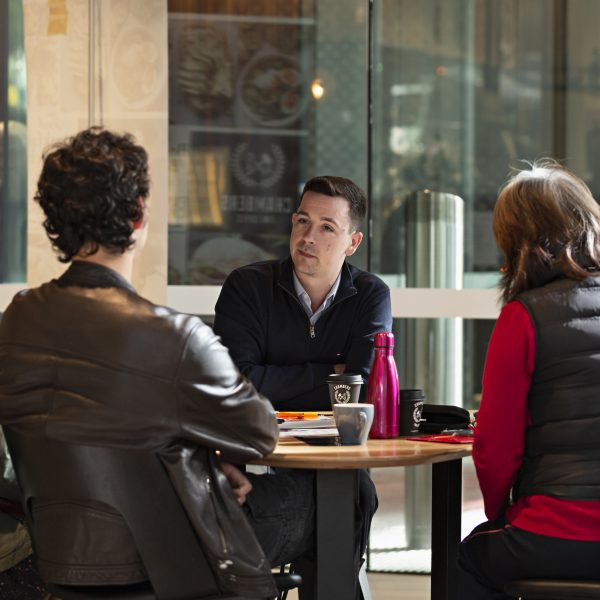
Learn from, connect with, and share your experience with others impacted by brain injury. Synapse has different Reconnection Groups for all ages. See our upcoming Reconnections groups and join a group near you.
Read more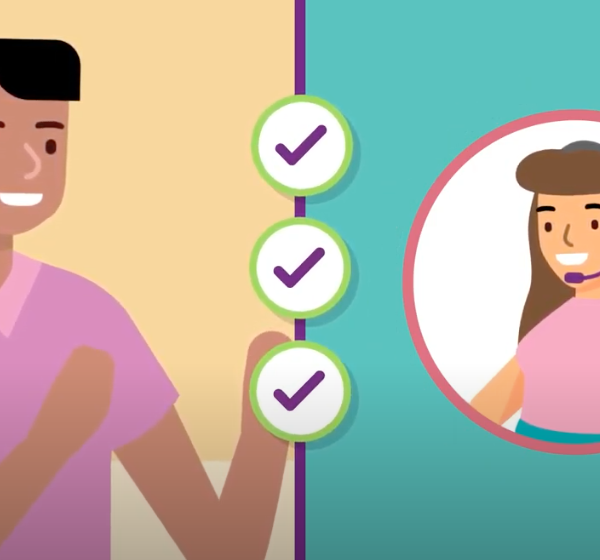
The NDIA has decided to indefinitely extend the use of core funding to access Support Coordination, making it easier to get the most from your NDIS plan.
Read moreCome, join us and connect with others living with a brain injury. Carers, families, and partners are also welcome.
Read moreCome, join us and connect with others living with a brain injury. Carers, families, and partners are also welcome.
Read more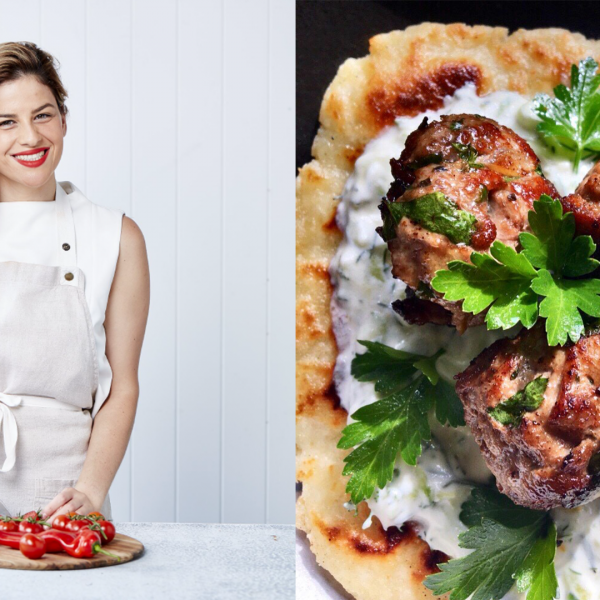
For Brain Injury Awareness Week Vikki Moursellas guided our Reconnections community through cooking a delightful meal of lamb kefethes with pita bread and tzatziki.
Read moreCome, join us and connect with others living with a brain injury. Carers, families, and partners are also welcome.
Read moreJoin us and connect with other family, friends and support networks of people living with a brain injury across Western Australia.
Read moreCome, join us and connect with others living with a brain injury. Carers, families, and partners are also welcome.
Read more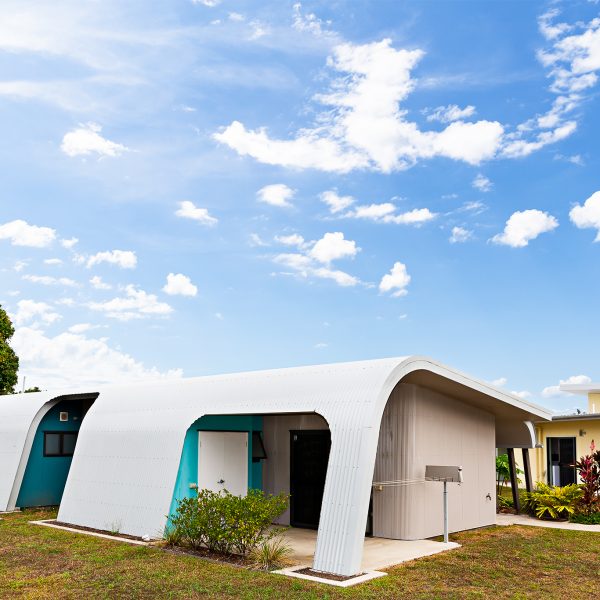
Organisations supporting young people living in nursing homes have welcomed the Morrison Government’s commitment to work to the targets endorsed by the Aged Care Royal Commission.
Read moreRegular in person and online meet-ups for those in WA wanting to connect with others living with a brain injury.
Read moreRegular in person and online meet-ups for those in WA wanting to connect with others living with a brain injury.
Read moreCome, join us and connect with others living with a brain injury. Carers, families, and partners are also welcome.
Read moreCome, join us and connect with others living with a brain injury. Carers, families, and partners are also welcome.
Read moreJoin us for a cup of tea or coffee and a chat to connect with other husbands, wives, and partners of people living with a brain injury across WA.
Read moreJoin us for a cup of tea or coffee and a chat to connect with other husbands, wives, and partners of people living with a brain injury across WA.
Read moreJoin us for a cup of tea or coffee and a chat to connect with other husbands, wives, and partners of people living with a brain injury across WA.
Read more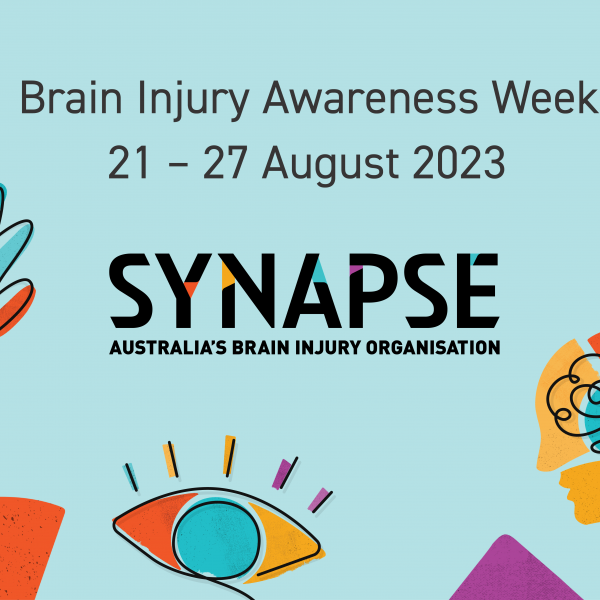
We’re so happy to have championed another Brain Injury Awareness Week to raise awareness of brain injury and its impact across Australia. Thank you to each person and company who came along side Synapse to share and highlight the week.
Read more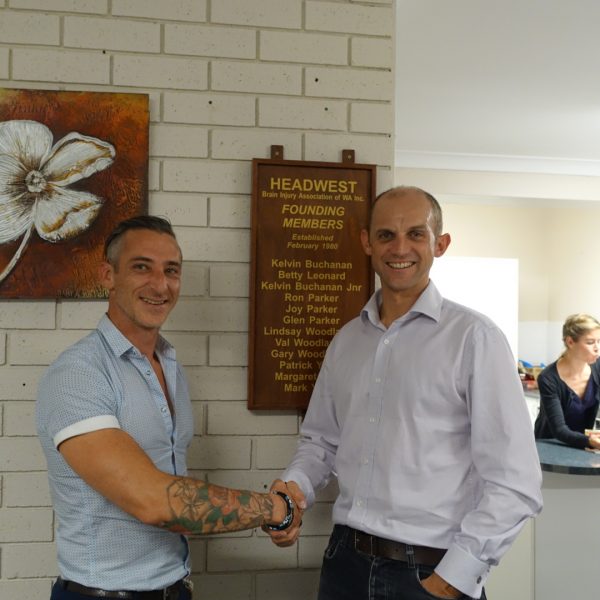
In late 2018, the Board of Headwest voted on a resolution to dissolve the organisation and transfer all assets to Synapse - Australia's Brain Injury Organisation.
Read moreOur Goulburn peer group is a regular meet up for people with brain injury and their support network to connect face-to-face.
Read more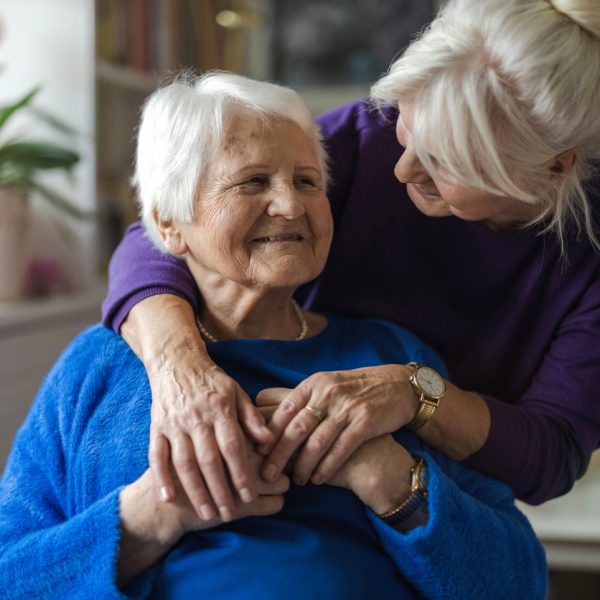
It’s important as we age that we get the support we need, to help us achieve the most independent and fulfilling life possible.
Read moreJoin us and connect with other family, friends and support networks of people living with a brain injury across Western Australia.
Read more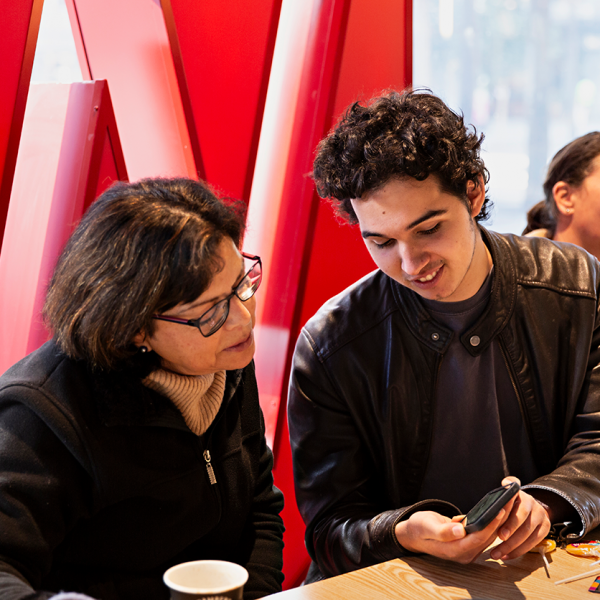
International Day of People with Disability (IDPwD) was recognised 3rd Dec. In this article, we explore what you can do to create and influence positive change in Australia.
Read moreJoin us and connect with other family, friends and support networks of people living with a brain injury across Western Australia.
Read moreAn online group for carers and family of people living with brain injury to take some time out in a supportive space.
Read more
Improving emotional regulation after an ABI can be very challenging. UWA School of Psychology recently presented some tips on retraining the way we think.
Read more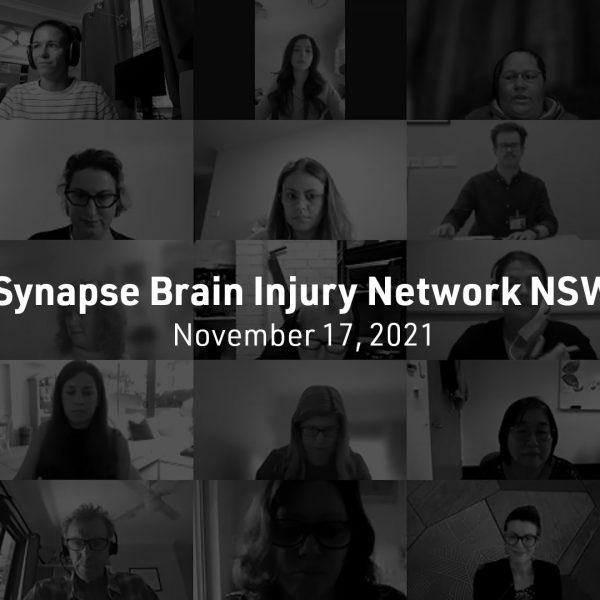
This week we held our Brain Injury Network event in New South Wales, connecting providers and specialists in our combined pursuit to support people impacted by brain injury.
Read moreCome, join us and connect with others living with a brain injury. Carers, families, and partners are also welcome.
Read more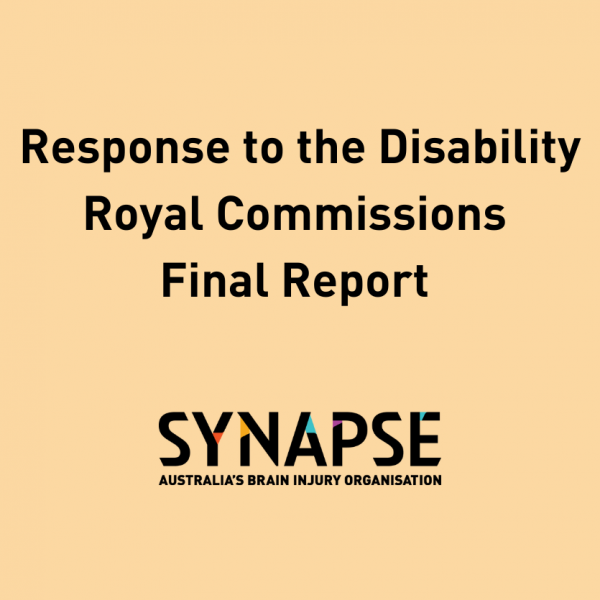
Synapse Australia claims issues outlined in the Disability Royal Commissions Final Report are well known to have existed in our systems and only make up part of the problem.
Read moreCome and meet up on the Sunshine Coast and connect with other people who're over 65 and living with a brain injury.
Read more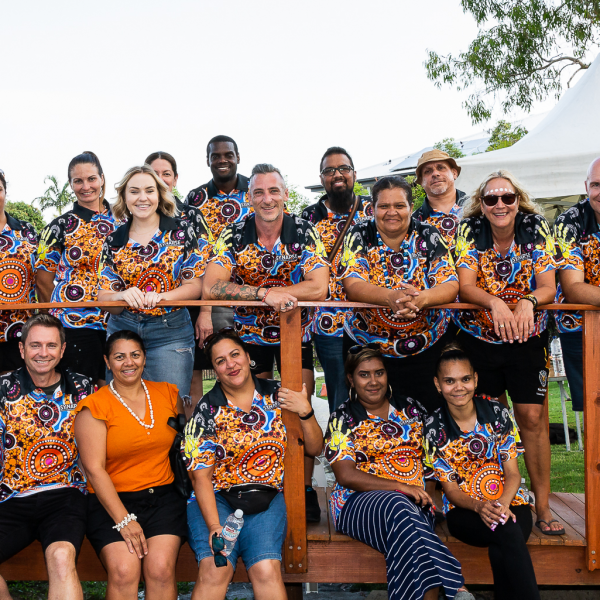
Synapse wins 2020 HESTA Excellence Award for Outstanding Organisation in Disability Services
Read moreJoin us and connect with other family, friends and support networks of people living with a brain injury across Western Australia.
Read moreJoin us and connect with other family, friends and support networks of people living with a brain injury across Western Australia.
Read moreJoin us and connect with other family, friends and support networks of people living with a brain injury across Western Australia.
Read more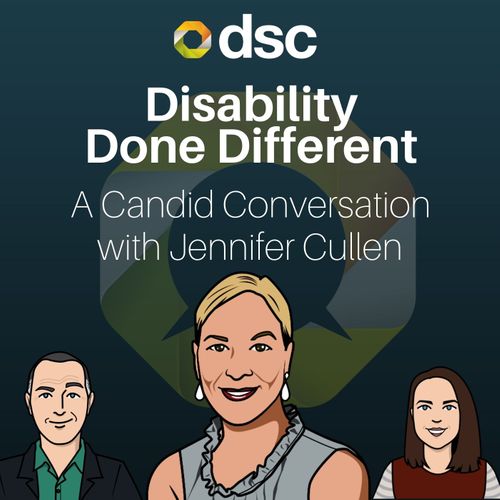
This month Jennifer sat down with the DSC team to yarn about being a proud Aboriginal woman and CEO of Synapse and how language, communication and co-design are vital to ensuring the inclusion of everyone in the disability sector.
Read more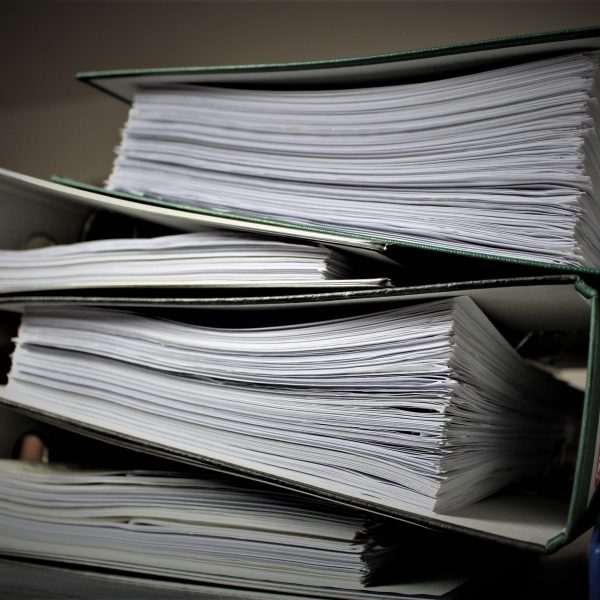
We have written to the new NDIS Minister, Linda Reynolds, to request a meeting, and hope that we can offer people who have experienced brain injury, and their families and carers, rapid reassurance in the wake of these distressing revelations.
Read moreWe're inviting anyone in regional or remote QLD to join the Synapse team for an online brain injury networking event.
Read moreA regular meet up on the Central Coast for people with brain injury and their support network to come and connect with other individuals.
Read moreA regular meet up on the Central Coast for people with brain injury and their support network to come and connect with other individuals.
Read moreA regular meet up on the Central Coast for people with brain injury and their support network to come and connect with other individuals.
Read moreA regular meet up on the Central Coast for people with brain injury and their support network to come and connect with other individuals.
Read moreA regular meet up on the Central Coast for people with brain injury and their support network to come and connect with other individuals.
Read moreOur Goulburn peer group is a regular meet up for people with brain injury and their support network to connect face-to-face.
Read moreOur Goulburn peer group is a regular meet up for people with brain injury and their support network to connect face-to-face.
Read moreOur Goulburn peer group is a regular meet up for people with brain injury and their support network to connect face-to-face.
Read moreOur Goulburn peer group is a regular meet up for people with brain injury and their support network to connect face-to-face.
Read moreJoin us for our online Reconnections support group where we will have an evening chat, followed by a relaxation session to unwind.
Read moreOur Goulburn peer group is a regular meet up for people with brain injury and their support network to connect face-to-face.
Read moreJoin us for our online Reconnections support group where we will have an evening chat, followed by a relaxation session to unwind.
Read moreJoin us for our online Reconnections support group where we will have an evening chat, followed by a relaxation session to unwind.
Read moreOur Goulburn peer group is a regular meet up for people with brain injury and their support network to connect face-to-face.
Read moreJoin us for our online Reconnections support group where we will have an evening chat, followed by a relaxation session to unwind.
Read moreOur Goulburn peer group is a regular meet up for people with brain injury and their support network to connect face-to-face.
Read moreThis Carer's Week, join us for our online Reconnections support group where we will have an evening chat, followed by a relaxation session to unwind.
Read moreJoin us for our online Reconnections support group where we will have an evening chat, followed by a relaxation session to unwind.
Read moreRegular in person and online meet-ups for those in WA wanting to connect with others living with a brain injury.
Read moreCome and meet up on the Sunshine Coast and connect with other people who're over 65 and living with a brain injury.
Read moreCome and meet up on the Sunshine Coast and connect with other people who're over 65 and living with a brain injury.
Read moreCome and meet up on the Sunshine Coast and connect with other people who're over 65 and living with a brain injury.
Read moreCome and meet up on the Sunshine Coast and connect with other people who're over 65 and living with a brain injury.
Read moreCome and meet up on the Sunshine Coast and connect with other people who're over 65 and living with a brain injury.
Read moreCome and meet up in Noosa and connect with other people who're over 65 and living with a brain injury.
Read moreCome and meet up in Noosa and connect with other people who're over 65 and living with a brain injury.
Read moreA regular meet up on the Central Coast for people with brain injury and their support network to come and connect with other individuals.
Read more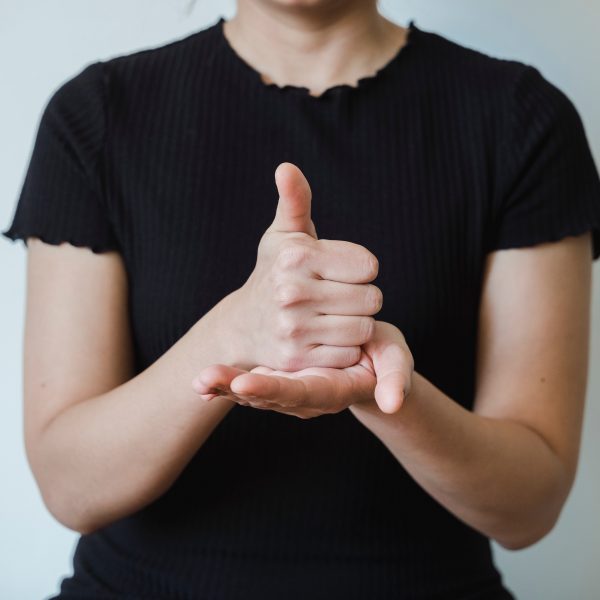
The NDIS made participant booklets available in 17 different languages, including digital braille and Auslan.
Read moreA regular meet up in the Northern Beaches of Sydney for people with a brain injury and their support network.
Read more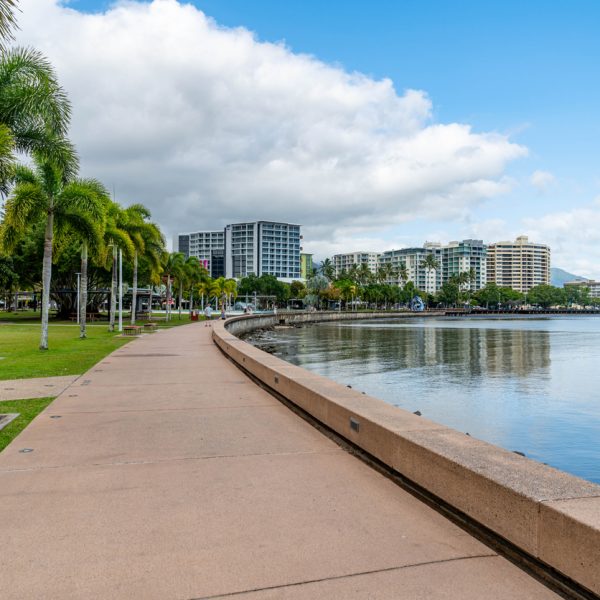
Synapse begins delivering the pilot brokerage model, Court Link Community Support Service (CLCS), the Queensland Government brokerage program to support a proportion of individuals accessing Court Link.
Read moreA regular meet up on the Central Coast for people with brain injury and their support network to come and connect with other individuals.
Read more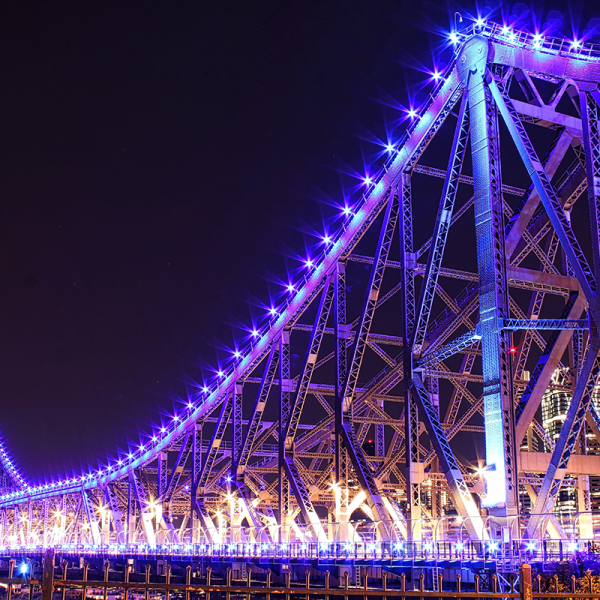
Landmarks across Australia and being lit up purple and yellow to support Brain Injury Awareness Week (21 - 27 August 2023). Locations include Brisbane, Perth, and Townsville.
Read moreA regular meet up on the Central Coast for people with brain injury and their support network to come and connect with other individuals.
Read more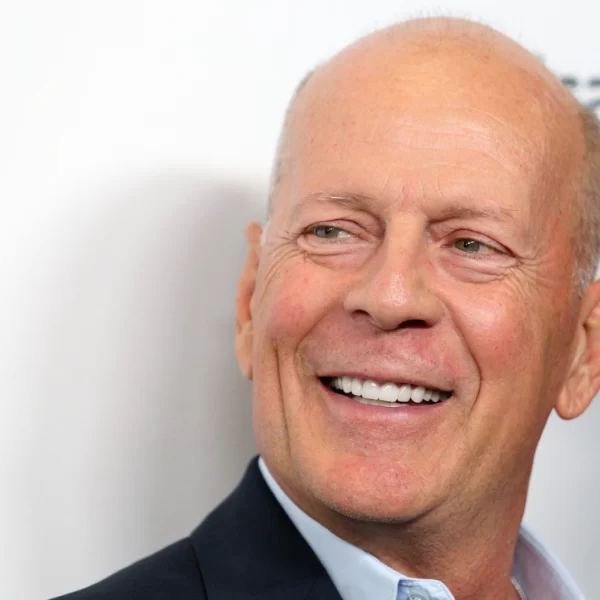
In early 2022 action star Bruce Willis publicly announced that he had aphasia, the condition was thrown into the public eye as everyone tried to work out what was happening to one of Hollywood’s biggest stars of all time.
Read moreCome and meet up in Noosa and connect with other people who are over 65 and living with a brain injury. These groups will provide the opportunity to chat, provide support, education, and share some of your challenges, victories, as well as tips & tricks.
Read moreMeet up on the Sunshine Coast and connect with other people who are over 65 and living with a brain injury. These groups will provide the opportunity to chat, provide support, education, and share some of your challenges, victories, as well as tips & tricks.
Read moreA regular meet up on the Central Coast for people with brain injury and their support network to come and connect with other individuals.
Read moreA social group for anyone impacted by brain injury. Come and connect with others living with brain injury.
Read moreA regular meet up on the Central Coast for people with brain injury and their support network to come and connect with other individuals.
Read moreA regular meet up on the Central Coast for people with brain injury and their support network to come and connect with other individuals.
Read moreCome and meet up on the Sunshine Coast and connect with other people who're over 65 and living with a brain injury.
Read moreSynapse Reconnections QLD group is held via Zoom online to bring together people with brain injury and their support networks across Queensland.
Read more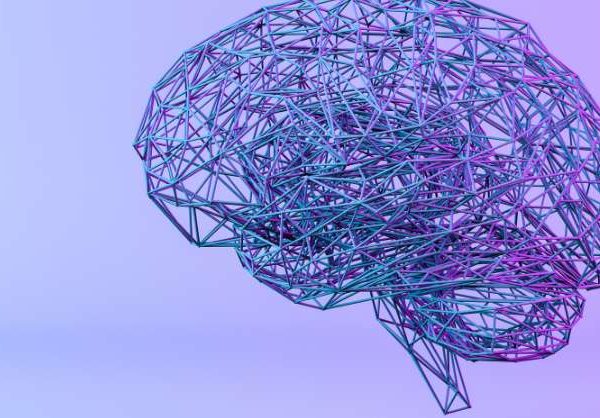
In 2022-2023 the Federal Government doubled the Disability Representative Organisations grants (DRO) from $2.6 million to $5.2 million annually.
Read moreOur peer group in Canberra is a regular meet up for people with brain injury and their support network to connect face-to-face.
Read moreAn immersive exhibition bringing together participants experiences with the National Disability Insurance Scheme (NDIS) through art.
Read moreCome and meet up on the Sunshine Coast and connect with other people who're over 65 and living with a brain injury.
Read moreSynapse Reconnections QLD group is held via Zoom online to bring together people with brain injury and their support networks across Queensland.
Read moreSynapse Reconnections QLD group is held via Zoom online to bring together people with brain injury and their support networks across Queensland.
Read moreSynapse Reconnections QLD group is held via Zoom online to bring together people with brain injury and their support networks across Queensland.
Read moreSynapse Reconnections QLD group is held via Zoom online to bring together people with brain injury and their support networks across Queensland.
Read moreSynapse Reconnections QLD group is held via Zoom online to bring together people with brain injury and their support networks across Queensland.
Read more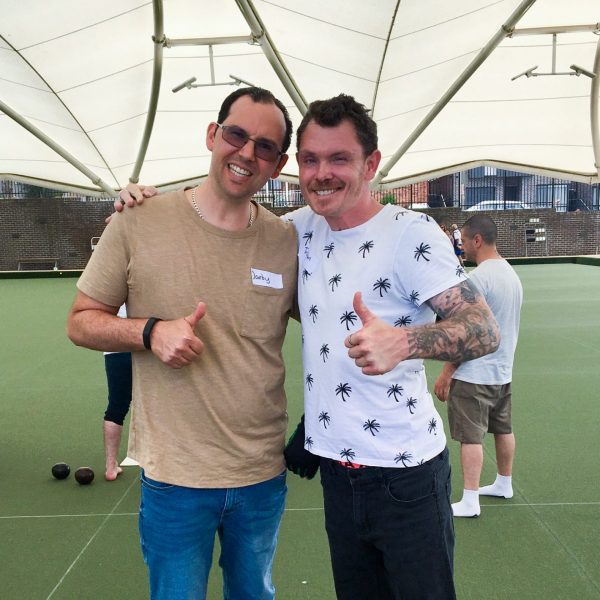
Find March and April support groups for those impacted by a brain injury. Support groups can be critical in helping cope with a brain injury.
Read moreA regular meet up in the Northern Beaches of Sydney for people with a brain injury and their support network.
Read moreA regular meet up in the Northern Beaches of Sydney for people with a brain injury and their support network.
Read moreA regular meet up in the Northern Beaches of Sydney for people with a brain injury and their support network.
Read moreA regular meet up in the Northern Beaches of Sydney for people with a brain injury and their support network.
Read moreA regular meet up in the Northern Beaches of Sydney for people with a brain injury and their support network.
Read moreA social group for anyone impacted by brain injury aged 18 to 30 years old. Come and connect with others living with brain injury and maybe make some friends at the same time.
Read moreCome and meet up on the Sunshine Coast and connect with other people who're over 65 and living with a brain injury.
Read moreCome and meet up on the Sunshine Coast and connect with other people who're over 65 and living with a brain injury.
Read moreCome and meet up on the Sunshine Coast and connect with other people who're over 65 and living with a brain injury.
Read moreJoin us and connect with other family, friends and support networks of people living with a brain injury across the Central West.
Read moreJoin us and connect with other family, friends and support networks of people living with a brain injury across the Central West.
Read moreJoin us and connect with other family, friends and support networks of people living with a brain injury across the Central West.
Read moreJoin us and connect with other family, friends and support networks of people living with a brain injury across the Central West.
Read moreJoin us during Carers Week and connect with other family, friends and support networks of people living with a brain injury across the Central West.
Read moreJoin us and connect with other family, friends and support networks of people living with a brain injury across the Central West.
Read moreOur peer group in the Illawarra is a regular meet up for people with brain injury and their support network to connect face-to-face.
Read moreOur Hunter peer group is a regular meet up for people with brain injury and their support network to connect face-to-face.
Read more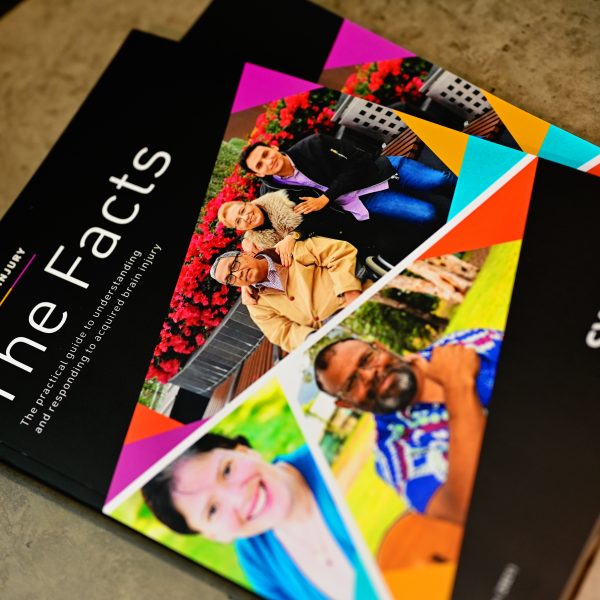
ABI The Facts is a comprehensive brain injury resource for professionals, individuals and families. It provides simple explanations of complex medical terms and delivers guidance for every stage of the brain injury journey.
Read moreA social group for anyone impacted by brain injury aged 18 to 30 years old. Come and connect with others living with brain injury and maybe make some friends at the same time.
Read moreOur peer group in Canberra is a regular meet up for people with brain injury and their support network to connect face-to-face.
Read moreA regular meet up in the Northern Beaches of Sydney for people with a brain injury and their support network.
Read moreA regular meet up in the Northern Beaches of Sydney for people with a brain injury and their support network.
Read moreA regular meet up in the Northern Beaches of Sydney for people with a brain injury and their support network.
Read moreA regular meet up in the Northern Beaches of Sydney for people with a brain injury and their support network.
Read moreA regular meet up in the Northern Beaches of Sydney for people with a brain injury and their support network.
Read moreJoin us and connect with other family, friends and support networks of people living with a brain injury across Dubbo.
Read more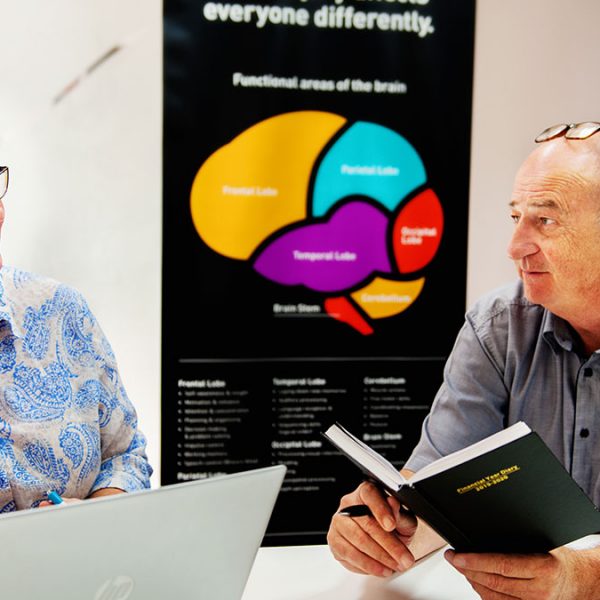
Despite the challenges presented by 2020, we are continuing to grow as Australia’s Brain Injury Organisation. With the expansion of our services in Western Australia and continued progress on several significant national projects, there are plenty of opportunities to join the Synapse team and make a difference for people impacted by brain injury.
Read moreOur Hunter peer group is a regular meet up for people with brain injury and their support network to connect face-to-face.
Read moreOur peer group in the Illawarra is a regular meet up for people with brain injury and their support network to connect face-to-face.
Read moreOur peer group in the Illawarra is a regular meet up for people with brain injury and their support network to connect face-to-face.
Read moreOur peer group in the Illawarra is a regular meet up for people with brain injury and their support network to connect face-to-face.
Read moreOur peer group in the Illawarra is a regular meet up for people with brain injury and their support network to connect face-to-face.
Read moreOur Goulburn peer group is a regular meet up for people with brain injury and their support network to connect face-to-face.
Read moreOur Hunter peer group is a regular meet up for people with brain injury and their support network to connect face-to-face.
Read moreOur Hunter peer group is a regular meet up for people with brain injury and their support network to connect face-to-face.
Read moreOur Hunter peer group is a regular meet up for people with brain injury and their support network to connect face-to-face.
Read moreOur Hunter peer group is a regular meet up for people with brain injury and their support network to connect face-to-face.
Read moreOur Hunter peer group is a regular meet up for people with brain injury and their support network to connect face-to-face.
Read more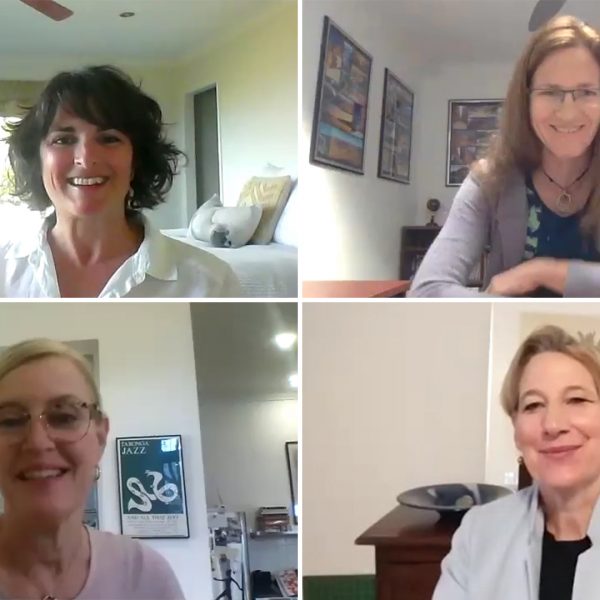
In this special conversation, guests Corinna Melville, Rachael Schwarz, Veronique Theberge and Karen Tighe from across Australia and New Zealand discuss how Encephalitis can affect anyone of any age or gender, and share their intimate experiences of what it is like to survive.
Read moreA social group for anyone impacted by brain injury aged 16 to 35 year old’s. Come and connect with others living with brain injury.
Read moreOur Hunter peer group is a regular meet up for people with brain injury and their support network to connect face-to-face.
Read moreSynapse Reconnections QLD group is held via Zoom online to bring together people with brain injury and their support networks across Queensland.
Read moreSynapse Reconnections QLD group is held via Zoom online to bring together people with brain injury and their support networks across Queensland.
Read moreSynapse Reconnections QLD group is held via Zoom online to bring together people with brain injury and their support networks across Queensland.
Read moreOur peer group in the Illawarra is a regular meet up for people with brain injury and their support network to connect face-to-face.
Read moreSynapse Reconnections QLD group is held via Zoom online to bring together people with brain injury and their support networks across Queensland.
Read more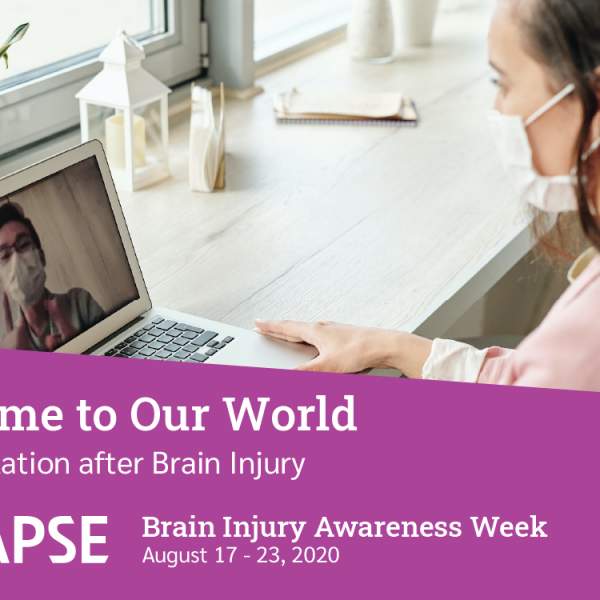
Brain Injury Awareness Week is being held this year 17-23 August. Our theme for 2020 is ‘Welcome to our World’: Social Isolation after Brain Injury.
Read moreA social group for anyone impacted by brain injury aged 16 to 35 year old’s. Come and connect with others living with brain injury.
Read more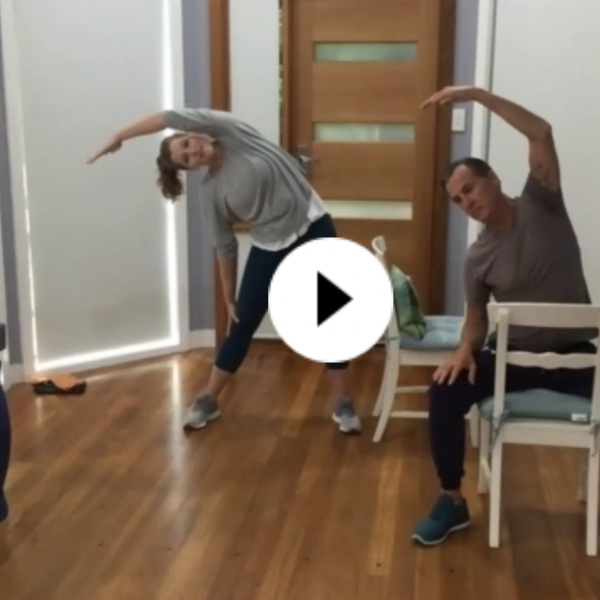
A few weeks back members of the Reconnections community met online to participate in ‘Dance with Ability’. This therapy-based dance program was great fun for everyone and showed how dance can build self-confidence and general health. You can re-watch the session and get moving to some great tunes with Shane and Keri.
Read more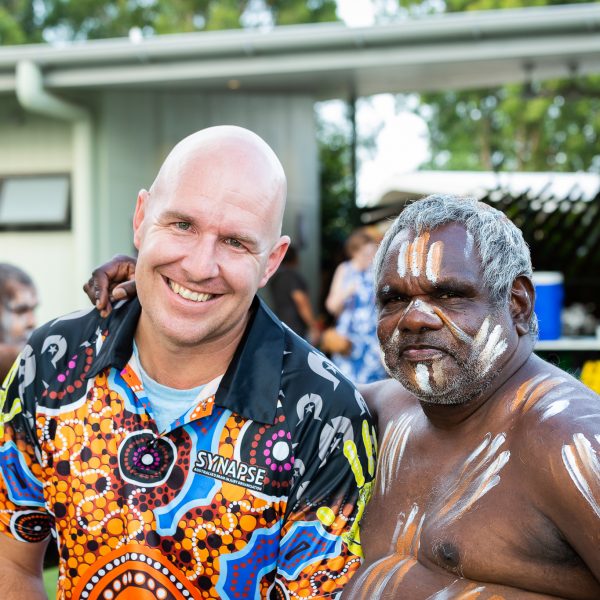
When we talk about country it's about a connection to both land and culture - more than just place. Country is who our Aboriginal and Torres Strait Islander people are and where they get their strength from.
Read moreThis Reconnections group is for Mandarin speaking people living with brain injury, their family members and carers.
Read moreAre you interested in attending a face-to-face peer group in Canberra to connect with others living with brain injury? Get in touch!
Read moreOur peer group in the Illawarra is a regular meet up for people with brain injury and their support network to connect face-to-face.
Read moreAn online group for carers and family of people living with brain injury to connect and share their experiences.
Read moreOur Hunter peer group is a regular meet up for people with brain injury and their support network to connect face-to-face.
Read moreOur Parramatta Reconnections group is a regular meet up for people with brain injury and their support network to connect face-to-face.
Read moreAn online group for Queensland carers and family of people living with brain injury to share and connect.
Read moreOur peer group in the Wagga Wagga is a regular meet up for people with brain injury and their support network to connect face-to-face.
Read moreAn online group for Queensland carers and family of people living with brain injury to share and connect.
Read moreOur peer group in the Illawarra is a regular meet up for people with brain injury and their support network to connect face-to-face.
Read moreOur peer group in the Illawarra is a regular meet up for people with brain injury and their support network to connect face-to-face.
Read moreOur peer group in the Illawarra is a regular meet up for people with brain injury and their support network to connect face-to-face.
Read moreOur peer group in the Illawarra is a regular meet up for people with brain injury and their support network to connect face-to-face.
Read moreOur Hunter peer group is a regular meet up for people with brain injury and their support network to connect face-to-face.
Read moreOur Hunter peer group is a regular meet up for people with brain injury and their support network to connect face-to-face.
Read moreA Synapse Reconnections brain injury meet-up, in conjunction with Dubbo Brain Injury Rehabilitation Unit.
Read moreA pamper morning for Carers during Carers Week, in partnership with Mid North Coast Brain Injury Rehabilitation Service.
Read moreA social group for anyone impacted by brain injury aged 16 to 35 years old. Come and connect with others living with brain injury.
Read moreDrop-in and speak to members of the Synapse Information team in a safe and friendly environment in Caboolture.
Read moreA social group for anyone impacted by brain injury aged 16 to 35 years old. Come and connect with others living with brain injury.
Read moreA social group for anyone impacted by brain injury aged 16 to 35 years old. Come and connect with others living with brain injury.
Read moreA social group for anyone impacted by brain injury aged 16 to 35 years old. Come and connect with others living with brain injury.
Read more
Brain Injury Awareness Week 2021 recognises that every brain injury is different and shares the stories of those impacted
Read more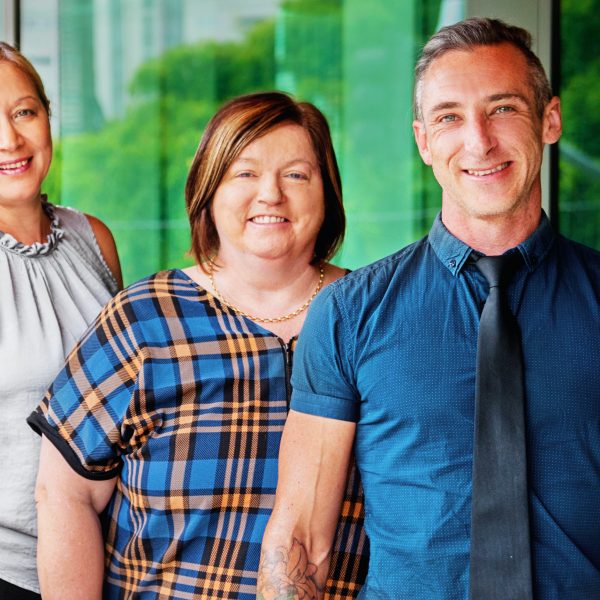
The HESTA Excellence Awards recognise exceptional achievements in a range of settings across aged care, allied health, community services and disability services. Synapse has been nominated for Outstanding Organisation in Disability Services, a testament to the hard work of our committed staff.
Read moreThis Reconnections group is for Mandarin speaking people living with brain injury, their family members and carers.
Read moreThis Reconnections group is for Mandarin speaking people living with brain injury, their family members and carers.
Read moreOur Parramatta Reconnections group is a regular meet up for people with brain injury and their support network to connect face-to-face.
Read moreOur Parramatta Reconnections group is a regular meet up for people with brain injury and their support network to connect face-to-face.
Read moreA social group for anyone impacted by brain injury aged 16 to 35 years old. Come and connect with others living with brain injury.
Read moreA social group for anyone impacted by brain injury aged 16 to 35 years old. Come and connect with others living with brain injury.
Read moreAn online group for carers and family of people living with brain injury to take some time out in a supportive space.
Read moreAn online group for Queensland carers and family of people living with brain injury to share and connect.
Read moreAn online group for Queensland carers and family of people living with brain injury to share and connect.
Read moreAn online group for Queensland carers and family of people living with brain injury to share and connect.
Read moreOur Parramatta Reconnections group is a regular meet up for people with brain injury and their support network to connect face-to-face.
Read moreA social group for anyone impacted by brain injury aged 16 to 35 years old. Come and connect with others living with brain injury.
Read moreAn online group for carers and family of people living with brain injury to take some time out in a supportive space.
Read more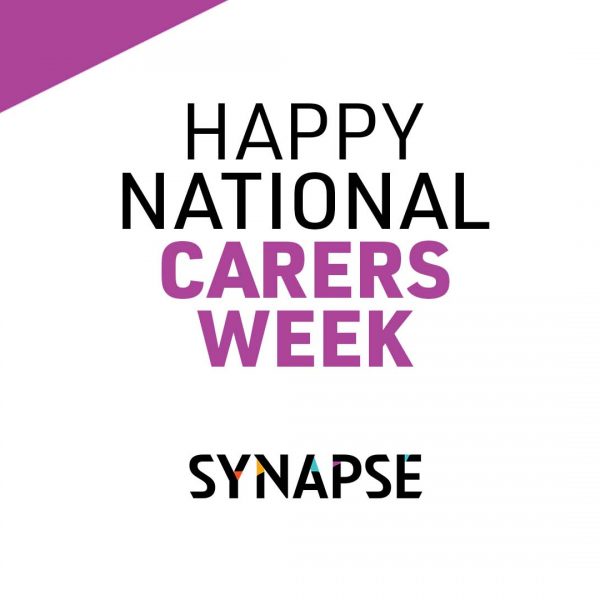
National Carer's Week is upon us! Here are some top tips from our community for self-care.
Read moreThis Reconnections group is for Mandarin speaking people living with brain injury, their family members and carers.
Read moreThis Reconnections group is for Mandarin speaking people living with brain injury, their family members and carers.
Read moreThis Reconnections group is for Mandarin speaking people living with brain injury, their family members and carers.
Read moreThis Reconnections group is for Mandarin speaking people living with brain injury, their family members and carers.
Read moreOur 'Your Brain Matters' community drop-in provides Seniors impacted by brain injury the opportunity to chat and receive support!
Read moreOur Shoalhaven brain injury group is a regular meet up for people with brain injury and their support network.
Read moreAn online group for carers and family of people living with brain injury to take some time out in a supportive space.
Read moreThis Reconnections group is for Mandarin speaking people living with brain injury, their family members and carers.
Read moreThis Reconnections group is for Mandarin speaking people living with brain injury, their family members and carers.
Read moreThis Reconnections group is for Mandarin speaking people living with brain injury, their family members and carers.
Read moreJoin us for a Synapse Reconnections brain injury meet-up, located in Dubbo NSW, in conjunction with Dubbo Brain Injury Rehabilitation Unit.
Read moreIf you’ve got questions or need advice, support or further information, get in touch with us today. We’d love to help